#but protecting the companion? especially if that companion protected you earlier in the episode/season?
Text
Canon!Eleven making River break her wrist in order to prove time wrong, not even stopping to help her get out
v.
SATTVAT!Eleven willing to sacrifice his life/regenerating just so that River, his daughter, can live
Fight!
#space and time takes violent angry things and makes them kind#listen listen i kind of always prefer my regenerations to be semi-sacrificial in nature#FOR PURELY CHARACTER REASONS#you get shot just kind of because the actor has to leave?#no thank you my guys#but protecting the companion? especially if that companion protected you earlier in the episode/season?#*chef's kiss*#nine is triumphant and ten is tragic but both of their regenerations land so hard for me personally bc of the lead-up/reason for regenerati#while 11 12 and 13 have great regeneration SCENES#but old age? shot by cybermen? big glowing beam as the doctor has already defeated the master?#i get why the writers chose them they just aren't as compelling for me personally#whatever floats your boat though#still Eleven's cruelty towards River turned me off of their relationship (as well as a number of other reasons) early on#eleventh doctor#river song#aletterinthenameofsanity#my fics#ao3#fanfic#doctor who#anyway next fic is the regeneration fic#spoilers#anti moffat#just to be safe#tho power of the doctor had the same problem for me personally
5 notes
·
View notes
Text
Buckle up, fiends! This is how I imagine me travelling with different Doctors would go:
One: I'm polite enough that I think we'd get along just fine, but I don't think I'd be that close to him. I don't know if he'd appreciate my sarcasm. Out of all his companions, I think Susan and I would be cool.
Two: Hey look! A father figure! His high energy would be a bit intimidating to me, but I think he'd understand that. His attitude is nicer than One and I think he's more patient, he's also a goof. He reminds me of my grandpa, that's definitely a plus. Him and Jamie, powerhouse! I love those two and would love to travel with them! Victoria and Zoe? Love them too!
Three: I think he's cool. He would let me rant about random things and he would listen! He would teach me about whatever science thing he's doing. I wouldn't get it, but it would be cool. He would teach me some self defense, which would be awesome. UNIT? All pretty awesome, would love to know them. (Need to stop myself from making fun of the Master)
Four: okay if Two's energy was intimidating......oof. Not gonna lie, he kinda scares me. He moves so quickly I think it would difficult for me to process what's happening. I feel like I would rant about things and it wouldn't look like he's listening but he'd remember everything I said. I'll be talking about the Mysterious Benedict Society or something and weeks later he'd be like, "these doors open just like the doors at the Institute of the Very Enlightened, when Mr. Curtain would smash through them in his wheelchair. Now what does that tell us?" Anyway, fun to travel with but a bit exhausting. I like all his companions (especially Romana)
Five: oh my god I'd be adopted. Doesn't matter that I'm an adult, I am now part of this family and I'm not complaining. I think I'd get along with Five, he's very comforting. Another father figure! He's a dad, a tired dad, but a dad nonetheless! I think I'd get along best with Tegen. I love Nyssa and Adric but they're both excellent at math and stuff, so I'd just relate better to Tegen. Turlough, on the other hand,........we might not get along that well. I love this dramatic bitch but I think we'd annoy the shit out of each other. (Need to stop myself from making fun of the Master)
Six: hmmmmmm now this is a bit difficult. I love Six! And I love the sarcasm and the verbal sparring, etc. But I'm sensitive, so that might get old after a while. I'm also very sarcastic but I don't want to be mean.....eventually I'd be sarcastic back. I'd worry that I'd bore him or something (actually I'd always be worried about that). Peri and Mel tho! I love them both, I think I'd be friends with both of them.
Seven: he's like that weird fun uncle you only ever see at family reunions! He's a high energy goofball that commits war crimes, what could go wrong! He also kinda terrifies me! I feel like we'd have a similar relationship as he had with Ace. Speaking of Ace! I can't even describe how much I love Ace! She's so fucking cool and I want to be her friend!
Eight: Unfortunately, I don't know enough about the Eighth Doctor to tell how I'd get along with him. I've heard some things that make me go, "whhat the fuck??" Yes he scares me
Nine: oh hey would you ya look at that! We're both touch starved and depressed! I'm very non-confrontational, so I worry he'd get impatient with me. But maybe we'd chill in the library in comfortable silence sometimes. Also stan Rose Tyler, I love her. Jack and I would be cool too. We'd crack jokes all the time
Ten: again, the high energy is a bit intimidating. But, like Two, I think he'd be more patient with me. He'd actively listen to me rant about random shit and probably would respond to things. He might be more protective than earlier Doctors, he's lost too many people at this point. Again: stan Rose Tyler. I love Martha Jones! She's a badass! But out of all his companions, Donna is the one I'd love to travel with the most. She's one of, if not my favorite companions.
Eleven: high energy again. Except this time with an unbridled rage! Oh boy! Yes the others also got very angry, but Eleven's rage could be explosive at times. He certainly would be fun and funny to travel with but randomly exploding and yelling at someone or situation (Star whale episode) makes me too on edge. I do love Amy and Rory and River though. I think I'd just hang back with Rory, he survives (nearly) everything and has the braincells of the group. I do like Clara, but I think she's better with Twelve
Twelve: Hey look! A father figure! I'd rather travel with later Twelve because he's got that whole teacher/mentor thing going. I think we'd have a very similar relationship that he had with Bill, and I like that. Sarcastic grandpa and I think I'd be comfortable enough to be sarcastic back. Later Twelve is more patient, which is another reason I'd rather travel with season 10 Twelve. I think Clara and I would definitely be friends. Bill Potts is also amazing! (I don't have a crush on her! Shut up!)
Thirteen: The energy is almost too much! I definitely be accepted into the squad, I'd like to hang out with them. I think I'd get closer to the squad than the Doctor. Like Four, she moves a bit too quickly for me to process what's happening. We'd be friends, definitely! But I just think I'd be closer to the squad.
I hope this all made sense....sorry if it's too rambly.
#doctor who#classic who#first doctor#second doctor#third doctor#fourth doctor#fifth doctor#sixth doctor#seventh doctor#eigth doctor#ninth doctor#tenth doctor#eleventh doctor#the twelfth doctor#thriteenth doctor
48 notes
·
View notes
Text
...Sooo...about Rosegarden again...
As I was discussing with my good daikon buddy and fellow Rosegardening Pinehead @jealouscartoonist, you might as well fit Oscar with a shirt that reads “WHEN LOST, FIND RUBY ROSE” only to pan over to Ruby sporting a matching shirt that says “I’M RUBY ROSE” since at this point, I think the only person who has managed to successfully keep Oscar out of harm’s length is Ruby when she makes that her priority like how it was back in V5.


I’m not just saying this as a Rosegardener, I think it’s worth noting that each time Ruby has taken her eyes off Oscar or left him under the protection of someone else, he’s either gone missing or ends up separated from the team in some way or form. It is also worth noting that each time Oscar disappears, Ruby is more or less the first one folks make sure to inform.
Back in Argus, it was her Yang and Blake called out to first after they found Oscar gone. The same can be said for when the JNR Trio discovered Oscar missing from his room and Jaune tried to tell Ruby before Ironwood cut him off.

I also love the added detail that Ruby was also the one Yang asked regarding Oscar’s feelings about their decision to deceive the General. Though it wasn’t actually stated in the series, the implication I got from that moment at the start of V7 was that Ruby’s choice to deceive the General came from a place of her mistrust in him given the treatment of the Mantle and possibly a need to protect Oscar as well since, on two occasions, Ruby has witnessed Oscar being hurt both physically and emotionally for Oz’s mistakes after the truth came out.

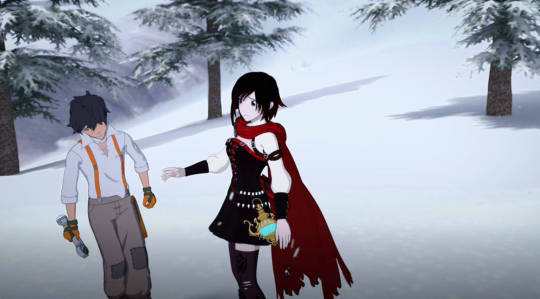

The fact that she chimed in with a lie the instant Ironwood started questioning Oscar about Oz gave me this vibe. That and the fact that Ruby glanced in Oscar’s direction with an almost guilty expression following what she had done. It’s these little things that speak volume about this dynamic.

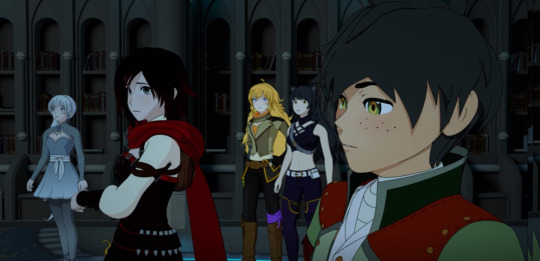
It is for this reason why I get peeved whenever I hear antis claiming that Rosegarden is forced. It is very evident from previous seasons that Oscar and Ruby have been shown to care deeply about one another. While they may not share the same history from the Beacon Days back in Vale as Ruby's other companions since she's only known Oscar since they met in Mistral. However it is notably impressive how protective and supportive Ruby has grown to be of Oscar since the two first met and the same can be said of his attachment to her.

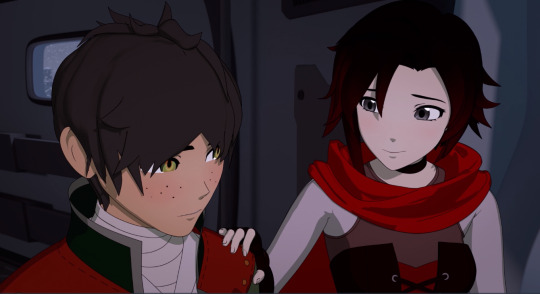
While this season seems to be testing that loyalty, it is for reasons such as this why this squiggle meister is highly fond of the dynamic between the Rosegarden friendship and why I pay so much attention to it. While you can possibly deny the two might not be interested in one another romantically at the moment, you can't say they don't care about each deeply as close friends.
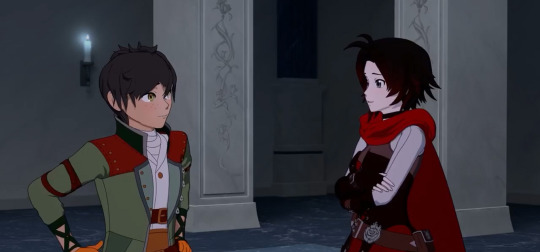
For Pete's sake, above any other character on the hero team, Ruby was the first one to volunteer to go pick up Oscar from the slums. While she was accompanied by Weiss with Maria as their certified Granny Urber driver, it was sweet how Ruby was the one to greet Oscar first when he originally pegged the airship to be a threat based on Oz’s initial warning.


Not to mention that Ruby was also the only one to stand next to Oscar on the entire plane ride back to the bar and show him support and comfort while Maria flew the plane and Weiss stood in the corner and let the two beans have their moment.


I’m going to chock this up to mean that Weiss must’ve known how concerned Ruby was for Oscar after learning he had disappeared again (especially since Blake’s remark was that the group thought something bad had happened to him after he didn’t arrive on the ship with JNR) so out of respect for her “best friend” and teammate, she kept her distance and allowed Ruby to be the one to have her time with Oscar. At least, that’s how I’m interpreting it.
You cannot convince me that Ruby isn't the closest thing to a close confidante or best friend that Oscar has on the hero team. Nevermind that he also shares her with characters such as Weiss and Penny. In respect to Oscar's affiliates, Ruby is his closest. She is the true rose in his little prince story; assumingly.
He's not even that close with Oz and Oz practically lives rent free in the little prince's head until the Merge.

Bottom-line, given the development of the season so far, I'm curious to see what little or more the showrunners may do to continue to progress the budding bond between our two, smaller more honest souls.
While I understand that Ruby is more or less the leader of the team and Oscar is a member of the team, I still find it pretty interesting that when Oscar disappears, Ruby is one of the first people to be informed. Makes me wonder how it will be for tomorrow’s episode in the event that YJR fail to rescue Oscar from the Hound and they’re forced to break this depressing news to Ruby and the others JUST AFTER they had reunited with Oscar earlier that very same day.
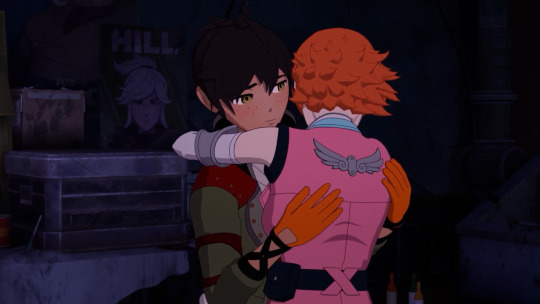
Should be interesting to see Ruby’s reaction to Oscar getting kidnapped by a monstrous talking Grimm to be taken to Salem (since who else would send a Grimm of that threat level after Oscar who is the incarnation of Salem’s former lover from a previous life turned mortal enemy).
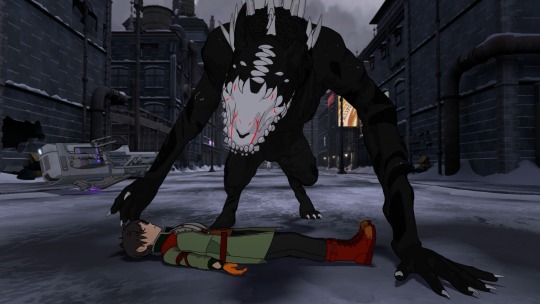
I’m hoping that either during this volume or afterwards (especially after the group rescue Oscar from George the Hound) that Ruby takes a more overprotective stance towards Oscar. I mean she already looks out for him a lot but imagine if…the little red rose’s overprotectiveness of the little prince is dialed up to like a 50 after Atlas.
The group keep losing him! Someone’s gotta keep the little hazel eyed wandering sheep of the hero team in check, especially from all the wicked witches and big bad wolves out there trying to get him!
I’ve seen other Pineheads refer to Oscar’s animal counterpart as a deer given his name. But I dunno. To me, Oscar’s more of a sheep since he keeps getting separated from the herd. Plus a sheep fits Oscar given the Little Prince reference too. Why not?
Now I wanna squiggle some Stray Sheep Boy Oscar fanart. I think I’ll do that later for my own amusement. Until then, those are my thoughts.
~LittleMissSquiggles (2020)
85 notes
·
View notes
Text
@once-and-future-gay asked:
how do you think will would react to how merlin treats mordred were he alive??
Okay, I LOVE this question.
And my honest answer to it is that I think if Will were alive, things would never have gotten to a point where Merlin felt like he needed to treat Mordred like that in the first place.
(more details under the cut, because this got long!)
The reasons why Merlin ends up in a place where he is able to make those kinds of cold decisions about Mordred are obviously super complex. But in the end, I think most of it comes back to the fact that by Season 5, Merlin has come to see himself as a tool. The ultimate fallout of Merlin being constantly told about his role in Arthur's life is that he comes to see himself as an instrument of destiny, not a person in his own right. His life isn't his own. He has no inherent worth, no inherent self, just a purpose to fulfill. His life was always earmarked for someone else. His value, in his own mind, is inextricably tied up with whether or not he can succeed in his mission. He doesn’t think he is allowed to have more than that. He doesn’t think he deserves to have more than that, frankly - every time he tries, something terrible happens.
This isn’t the case, earlier in the show. In the early days, Merlin still has hopes and dreams for himself. He still longs for a day where he can be known for who and what he is. He still chafes at having to hide. He still thinks he deserves better than what he has. He's still invested in his own life, as a person who is worth something just by virtue of existing. But as time goes on, those feelings start to slip away. He's still fighting, but for other people, not himself. He stops asking Gaius, "When do I get to reveal myself?" He doesn't expect that to ever happen now. He starts defining his worth as how well he can fulfill his “destiny,” and stops seeing himself as a person in his own right. He's been told so many times that his life belongs to someone else - that his only reason for living is to serve a higher purpose - that he now believes it. And that makes him more willing to do things (in service of that destiny) that he would have balked at when he was younger, before he lost his sense of selfhood, before he became just a tool to ensure that events unfolded as they were “supposed” to.
In the earlier seasons, we see Merlin defy Kilgharrah's directives on multiple occasions. He saves Mordred. He forces Kilgharrah to teach him how to heal Morgana, even after she's been revealed to be a traitor. He's not yet willing to do things he feels uncomfortable about to bring about “destiny.” He still thinks things can be better than that. But as time goes on (read: after Will dies, and especially once Lancelot is also dead) Merlin becomes so isolated from anything that isn’t The Mission. He has no “real” friends anymore. Which, as I've discussed before, isn't to say that he doesn't have meaningful, caring relationships with other people, just that every one of those relationships is, for him, undergirded by the knowledge that the friendship is conditional - aka, “if they actually knew me, they would hate me.” He has nobody to meet his most elemental need for connection - to be seen and loved for who he is - and by the later seasons, Merlin has been deprived of that kind of care for so long that he just stops trying to find it anywhere anymore. Every time he has had somebody to love him like that, it has gone horribly, terribly wrong, and by the time we reach S5, Merlin just feels like it's better for everyone if he stops feeling these "selfish" desires for real companionship and just focuses on the job he's meant to do, no matter how painful it is for him. It doesn't matter if he's miserable, as long as he's be able to bring about the better world that has been promised.
Lancelot is able to serve as a buffer against this, briefly, while he’s alive. His presence is a huge part of why Merlin is so happy in the S4 opener. Finally, Merlin has a friend to know him, to share his burdens, and everything is changing for the better. Arthur is basically running the kingdom, and it's only a matter of time before he actually becomes king. Traditions are already changing, by Arthur's command - now Camelot's most respected knights are commoners! The Crown Prince is publicly courting a servant! This is a moment where Merlin really feels that the moment he has been waiting for is right around the corner. He thinks they're almost there. He has so much hope, at the beginning of Season 4.
And then Lancelot dies - for Arthur - and everything starts spiraling. Lancelot dies on the altar of Merlin's destiny the same way Will does, and that breaks something in Merlin. He stops trying to make things better for himself. “Destiny” is going to take everything from him anyway. He gives up and accepts that the only worthwhile thing he can actually do with his life is to make sure that Arthur lives to create the better world that has been promised, and that he himself is always going to be alone.
And then Merlin is alone, for the next three years. And that's who he is when we meet him in S5 - disillusioned, desperately isolated, all of his personal needs subsumed for far too long. The only thing keeping him afloat is his mission, and he will do anything to make sure it succeeds, now, because if he starts doubting it, then that means that everything terrible that has happened has been for nothing.
And this is really why I feel that having Will around would change things, to a degree where I honestly can't imagine we'd ever wind up in a position where Merlin would have been self-abnegating like this for years, or would have allowed Kara's execution or told Arthur to reject magic just to ensure that Mordred would die (TO BE CLEAR - I'm not putting the blame on Merlin for what Arthur decides to do in 5.05. Arthur's a grown man; he's seen enough to have more nuanced opinions on sorcery by now).
Will is just....I know he was only in the show briefly, but his presence in Merlin's life was so much more important than that one episode, and his ABSENCE is more disastrous than is made apparent on the surface of things. Will is Merlin’s anchor. He gives Merlin something that Merlin cannot access from anybody else, Lancelot included. He is the only person in Merlin’s orbit who is not somehow connected/beholden to Arthur and Camelot. All of Merlin's other friends become knights, or become queen, or are deeply invested in Merlin's destiny and the emergence of Albion (eg, Gaius). Every single relationship Merlin has is with people who are committed to Arthur and Camelot in the same way that Merlin himself is. He has nobody to tell him “this is wrong; you're sacrificing too much,” because everyone he knows is on the same page as him. All of his companions are sworn to die for the realm. Will is the only person whose existence reminds Merlin “you mattered BEFORE you went to Camelot and got this magical homework assignment from the gods. You were just as much of a person back then.”
Will is the only friend Merlin has who links him back to his original self, who connects him to who he was before destiny buried its hooks into him. Merlin in S5 has been so alone and so put upon for so long that he believes his only purpose in life is to be an implement of destiny, but Will, if he were alive, would throw a fit every time Merlin started saying things like “his life is worth a hundred of mine” or “I was born to serve [Arthur].” Merlin might think he's a tool and that his life doesn't matter outside of its ability to usher in the new world, but Will wouldn’t tolerate that attitude. Will would tell him you are NOT a tool; you are a person, one who likes to read and whose favorite fruit is apples and who gets the hiccups when he eats too fast. You don't have to do everything somebody tells you to just because they told you to do it. That's the kind of wrong-headed thinking that got my father killed.
Will would never let Merlin arrive at a spot where Merlin felt like his life and his principles were disposable or worthless in comparison to the success of the “mission.” And Will would never let Merlin get away with doing questionable things in the name of keeping Arthur alive, either. Will, in canon, is the person who serves as Merlin's moral compass - in 1.10, Will is the one who's telling Merlin “it is WRONG for you to consider letting all of these people die in order to keep your secret safe.” Even Merlin's own mother won't tell him that - when she realizes that Merlin is planning to use his magic to help during the battle, she tells him not to do it, despite the fact that there is literally no way the village can defeat Kanen without Merlin's help. She advocates for Merlin to protect his own secrets, even at the expense of other people's lives.
Will, though. Will refuses to compromise. Will wants Merlin to be safe, too, but not at the expense of what makes Merlin who he is. Will KNOWS that sacrificing others for the sake of his secret isn't what Merlin really wants to do. Will knows Merlin is better than that. He tells Merlin to smarten up. He tells Merlin to do the right thing.
So like - having Will alive would change things for the following two reasons: 1) Will, in canon, is the person who tells Merlin “you deserve better than this,” and 2) Will, in canon, is also the person who tells Merlin “you ARE better than this. you can do better than this.” I don’t think Merlin would have made the same choices with Mordred if Will had been present for the previous five seasons, because Merlin would never have fallen so far into the “i don’t remember who i used to be and i can only see one purpose for my life now” hole. Will would not have let him get to that place.
Possibly more importantly - I honestly think if Will were alive, we might never have ended up in a position where Merlin had to make choices like that about Mordred in the first place. Will living would change the entire story. Now Arthur doesn’t just get to sweep the whole “oh man an Evil Sorcerer died/almost died saving my life; that really challenges my worldview; hope I don't have to think about it too hard” issue under the rug, like he does in canon. He’d have to be confronted with that continuously, every day. And he would not be able to just project his anti-sorcery beliefs onto Merlin like he does in canon, either - he would know that Merlin's best friend is a sorcerer, and that Merlin continues to stand by said sorcerer even after the sorcery itself has been revealed.
In canon, Arthur and Merlin avoid this topic forever, and I think Arthur honestly tries to forget it ever happened, because it's easier for him and makes him less uncomfortable, but if Will had lived, they would have been forced to deal with that friction every day, and Arthur would have been constantly confronted by the cognitive dissonance of “sorcery is supposedly evil, but how can it be, when this guy so obviously is not?”
Will being alive would mean Arthur had to confront his prejudices sooner, because a) I fully believe alive!Will would have eventually followed Merlin anywhere, even to Camelot, and b) once he was there, Will would absolutely have kept up the pretense of being a sorcerer. He would never have allowed Merlin to be endangered by him abandoning the ruse. So Arthur would have had to deal with that, and honestly, I’m not sure Camelot’s policies on magic wouldn’t have already changed by the time Mordred showed up again, in this timeline.

There’s one other thing that I want to be clear about when it comes to any question that deals with Merlin’s interactions with Mordred (or many of Merlin’s late-season decisions, to be honest).
The way Merlin ends up dealing with Mordred is obviously something that we all are watching the screen being like "IF YOU WOULD JUST BE NICER TO HIM EVERYTHING WOULD BE OKAY." Even before I finished Season 5, I typed up my thoughts/worries/predictions, and I said that I was concerned Merlin's behavior was going to be the thing that ultimately created the exact future with Mordred that he was trying to prevent. We all know it's a messed up situation.
But I also personally find it absolutely imperative to recognize the unique situation Merlin is in, and that Merlin doesn't react this way to Mordred just for the hell of it, or even because he wants to.
This is something I want to make sure I address, because when talking about the potential for alive!Will to have changed Merlin’s behavior, it’s too easy for the discussion to be framed like “Will would be able to stop Merlin from doing all those stupid/irrational things, like mistrusting Mordred,” and it’s also VERY easy for the discussion to slide into, “Everything that happens at the end of BBC Merlin happens because Merlin was so consumed by how much he cared for Arthur that he was willing to sacrifice everything to keep Arthur alive (and perhaps Will could have snapped him out of it).” But I want to be very careful not to give either of those impressions.
There are two things that I am dead set on remembering when I think about any and all of the decisions Merlin makes, including his decisions about Mordred: first, that Merlin does not suspect/reject Mordred (or support/protect Arthur) in a vacuum. And second, that he doesn't do either of these things solely on Kilgharrah's advice, either.
Merlin, on a personal level, does not want to be in conflict with Mordred. He still relates to Mordred as kin, even at the beginning of the Disir (“It won’t always be like this. One day we will live in freedom again.”) He LIKES Mordred, even, he tells Gaius. But when he says so, he expresses it like this: “I like him myself - but I can't ignore what I saw.”
To get into this in a little more detail - why does Merlin struggle with Mordred in the first place? Because he's been shown that Mordred is going to be instrumental in Arthur's death. And why is Merlin fixated on preventing Arthur's death? Because Merlin has been told, by multiple magical and/or godly powers, that Arthur is the key to establishing peace in Albion and returning magic to the land.
This is a non-negotiable point for me when I read things about Merlin's decision-making. I've written plenty myself about the messed-up place Merlin gets into in S5, where keeping Arthur alive at all costs has overridden every other aspect of his better judgment, but it is ESSENTIAL to me that we recognize that this is not something that happens solely because Merlin has a personal attachment to Arthur. He does care deeply about Arthur, obviously; he loves him - but that is NOT why Merlin in S5 is slipping into the murky waters of “save Arthur no matter what, even if it means doing things that go against my conscience.” His decision in the Disir - any decision he makes about Mordred, quite frankly - is not made because of a selfish, personal desire to keep Arthur alive. It is made because Merlin has been told, repeatedly, from all corners of the magical world, that keeping Arthur alive is the only way to establish peace in the world and liberate magic. And thus, by the time S5 rolls around, Merlin will do anything to achieve this, even things that seem on the surface to be working against these goals. He does not make his decisions because he is choosing Arthur OVER his people's liberation, but because he has been told that choosing Arthur IS the way to his people's liberation.
Merlin does not develop his obsessive fixation on keeping Arthur alive because his personal attachment to Arthur becomes so strong that he's willing to just let the rest of the world burn. He develops it because he has been told that Arthur is the key to creating a world where all people can be free. And it is ESSENTIAL to recognize that Merlin is not foolish for believing this, either. He isn't just listening to some random dragon spout nonsense at him. He has literal gods speaking to him, calling him by the name the Druids gave him and telling him his “time among men is not yet over”; he still has work to do. Druid prophets show him the future (Mordred killing Arthur) and urge him to “alter the never-ending circle of [Arthur's] fate.” Alator recognizes the legend Gaius speaks of as true and immediately offers Merlin his support. Bendrui like Finna (aka the remnants of Morgana's own sect, the High Priestesses) offer Merlin the assistance of further prophecies and tell him “without you, Emrys, Arthur cannot build the world we all long for.” The Catha pass on “ancient knowledge” about Arthur's fate that they've guarded for hundreds of years, in the hopes that it will help Merlin save Arthur’s life. The Fisher King recognizes Merlin as Emrys and tells him “I have been waiting all these years for the arrival of a new time: the time of the Once and Future King” - and then he gives Merlin the means to enable Arthur's victory in the S3 finale.
It's not just Kilgharrah telling Merlin about Arthur's destiny. It's the wider magical world - and bits of the divine world, too. Merlin is not stupid, gullible, or deluded to believe that Arthur's role in the prophesied future is true. It IS supposed to be true, in the Merlin BBC-verse. (And, once again, this is why the finale is, narratively speaking, garbage. But that's a topic for another day.)
All of that said - the fact that Merlin has legitimate reasons to believe what he believes and fight for Arthur's survival does not mean that every single sacrifice he makes in the name of achieving that goal is necessarily the only way he could go about things, and that, I think, is where Will being alive would have made a difference. Will, who loves Merlin more than life itself but does not care about Arthur or Camelot at all, would be a counterbalance to all the messaging Merlin receives about “destiny and Arthur over everything.” Will would have pulled Merlin back from the brink, with his stubbornly honest, “All right, so you have to do this, but not like this. Listen to yourself. This isn't you. This isn't the you I know.”
I don’t think anyone else could have done that for Merlin. Even at the very end of the show, after Merlin has been in Camelot for years, Will is still the longest-running relationship Merlin has ever had (excepting his mother, of course). Will is the only relationship Merlin has that both predates Camelot and isn’t even slightly concerned with Arthur Pendragon’s well-being. Will is the only one who isn’t beholden to Arthur or sworn to serve Camelot. Will is the only person who cares about Merlin instead of Arthur, not along with Arthur. Merlin has other people who love him, yes, definitely, but Will is the only one who says, “You, over everything else. You are the only thing on the map for me.”
The part Will played in Merlin’s life is not something that could be performed by somebody else. That loss is a hole that cannot be filled, even by other people who know Merlin’s secret. The history is unique. Merlin can’t just grow up again with someone else. Will was irreplaceable; the role he fulfilled in Merlin’s world was singular. Without his influence, Merlin is perpetually off-kilter.
Merlin needed someone like that in his life. He needed somebody to balance out the perpetual focus on Arthur+Destiny, which all of his other relationships encouraged, to varying degrees. The perpetual focus on Arthur+Destiny is what ultimately led Merlin to make the kind of decisions that he made with Mordred, but if Will had been around to push back on that, then I can’t imagine that things would have unfolded in the same way.
#very long answer for a short question i know#you can see why this would not fit in the message box#XD#thank you so much for asking; i enjoyed writing this up!#replies#meta#the once and future slowburn#no kings no masters#merlin S5
108 notes
·
View notes
Text
On Love and Lions Part 1: An Analysis on Love in VLD
“I have always believed that unity is where true power comes from, and true unity can only be born of love.”
--Gyrgan, Paladin of the Yellow Lion
Voltron: Legendary Defender is a cartoon on Netflix that–with the final season available to watch on Netflix–has extremely regressive and harmful messages. The S8 on Netflix carries lessons about how war is good, that men shouldn’t respect the wishes and desires of women, that violence and abuse mean even victims aren’t deserving of forgiveness. Everything about that is 100% antithetical to what VLD was about throughout the prior seasons and each harmful message is another nail in the coffin of the original narratives of peace, respect, and fundamentally how everyone is deserving of love and forgiveness, regardless of the circumstances of their birth.
In fact, the theme of love in VLD is something we at Team Purple Lion wish to discuss. It’s arguably the most absolutely fundamental theme of the show. Love destroys the universe, and love saves it over and over again. And love would have rebuilt the universe, but thanks to the edits ordered by the trademark holder, the universe that should have been born from love was instead born from one girl sacrificing her life because she saw no better option. She didn’t even get to tell her only remaining father figure goodbye. What kind of message is that? In the original final season, prior to the executive meddling, we should have seen how love was such a powerful force in the universe that it could not just repair this reality, but all realities. And it’s not just romantic love, but six types of love.
Now, for those of you more familiar with our work, we’ve discussed some pretty big concepts in VLD and how they’re addressed, and there will be even more in future episodes of our reconstruction Rise and Atone. VLD engages not just with its own predecessors in the Voltron franchise, but Beast King GoLion, Labyrinth, Frankenstein, and Maureen Murdock’s The Heroine’s Journey is all but the story bible for Allura’s arc. The concepts we are about to discuss date back to Ancient Greece, and while love can be more than these concepts, it’s important that we have a framework through which we can discuss and analyze love as it appears in VLD without getting lost in all the examples.
In American culture, “love” is not very well-differentiated between kinds because we only use one word: “love”. While we use it across all sorts of contexts, we have to add modifiers when we don’t mean romantic love or familial love, which are the most commonly-acknowledged forms of love. VLD, being written and edited by primarily Americans living in America, also encounters this issue, but it does not focus solely on romantic love, which can complicate how to interpret love in the show. We, however, would like to argue that not only is it all love, but it doesn’t all have to be good love, familial love, or romantic love. At the end of the day the plot is driven by love in its many forms. Love is so baked into the story that it’s quite difficult to extricate, dare I even say impossible, and that ultimately is part of why we were able to reconstruct so much of what was lost in S8.
The Ancient Greeks had many words for love, but we feel it’s important to discuss the dialogue that VLD engages in with various forms of love, using the Ancient Greeks’ framework as a guide. The model gives us concrete definitions of different kinds of love, and can help us as an audience understand the various forms of love that are present in VLD. It’s important that we define the different ways we can observe love being portrayed because much of VLD relies on the writing adage of “show, don’t tell”.
So without any further ado, let’s dig into what, precisely, is love.
As stated earlier, we’ll be using terminology coined by the Ancient Greeks, specifically six categories of love that we feel are most prevalent in the show. We’ve also deduced our own examples of these forms of love when they’re taken too far or flat-out discarded, which will be discussed in a companion article.
The six forms of love are as follows:
Eros: the most famous kind of love, an intense (and often sexual) passion for another being and seeing the beauty within them. This is the love that most closely aligns with romantic love as we understand it in a modern American context.
Philia: an affection and loyalty between friends, notable for its platonic nature, it is the love that arises between friends, and can be found among family, but the modern equivalent would be the found family trope.
Storge: this is the intrinsic empathy between individuals, primarily the attachment of parents to children. This form of love was primarily used to describe familial relationships, and the patience one sometimes needs when around blood relatives.
Philautia: put simply, this is self-love in its purest form. It is acknowledging your needs, wants, and happiness without apology. The Ancient Greeks considered Philautia to be a basic human need.
Xenia: while many might not consider this to be a form of love, it is hospitality, or as we define it, love between a host and their guests. Specifically, this would be the care a host gives to their guests in both physical (food, gifts, etc.) and non-physical (respecting rights, protection, etc.). Hospitality is massively important because if you are good to someone while they are in your home, they will be equally good to you if you visit theirs.
Agape: this is a Greco-Christian term, ultimately, and is a little more difficult to understand because it can be confused with other forms of love. At its core, though, it is a pure and unconditional love such as that between spouses, families, or God and man. It shouldn’t be confused for other forms of love such as Philia because unlike the other forms of love, which only focus on one aspect of humanity, Agape is the unconditional and universal love for everyone. It’s sexless, unlike Eros. At its core, it’s the love born of goodwill to all people, regardless of circumstance.
While these are only six categories, there are many ways of interpreting love, especially since there are so many avenues to see love–in good and bad forms–in VLD. These categories are also not inherently hierarchical, and are not presented in any particular order. Agape is the main exception, being more convoluted in its nature, and thus is discussed at the end. It also narratively serves as part of the culmination to the plot, so it carries a greater weight in relation to the alpha plot of the whole story.
Now, let’s examine how they present in VLD. As an official reminder, please remember that all analysis of VLD is done from a ship-neutral stance and we are not proposing any endgame romances. The sole purpose of this article is to discuss observable portrayals of love in its various forms, and to analyze both the text and the metatextual messages resulting from them.
Eros: Passionate Love
Eros… arguably this is the most contentious form of love presented in VLD, if only because of all the ship wars that occurred in the fandom. Eros drives the shipping communities of fandoms across the world, because it often stems from on-screen chemistry or the potential of the fleeting seconds where a spark flies but does not catch in canon. The beauty of Eros is that it ripples quietly through fiction, or it can be a tsunami ready to devour the story. It’s the quiet whisper of two women sharing a private moment, to the shouted declarations in the heat of battle. Eros thrums through fandoms in a desperate tempo for seeing a love as passionate as you can feel in characters who may never share more than a glance.
Plato actually had quite the influence on the word “Eros”, because “Eros” or erotic love, was largely regarded as a type of madness brought upon a person by seeing someone whose beauty strikes your heart with an arrow (Cupid’s arrows, anyone?). Eros is the love that drives you to despair if the object of your affections is cruel or uninterested, and it burns like a fire. “Falling in love at first sight” is the key concept here, and you can see it reproduced in fandoms across the world, though many cultures have their own names and terms for it. Henry George Liddell and Robert Scott define “Eros” in A Greek-English Lexicon as “love, mostly of the sexual passion”. Plato, however, redefined the word to include a nonphysical aspect. He discusses it in Symposium and says that while (physical) Eros can be felt for a person initially, with contemplation you can and will fall in love with a person’s inner beauty, which for Plato was the ideal, since he specifically emphasized the lack of importance of physical attraction. In fact, Jung–who coined the Anima and Animus–has a similar approach, with an emphasis on unity within the self by accepting your internal Eros which manifests as your feminine Anima/masculine Animus.
In the text of VLD, Eros is remarkably subdued. This is partially due to its rating. Being a Y7-FV show, VLD can’t really have explicitly sexual content. Sure the implication can exist, but a lot of times sex has to be carried through metaphor if a story is to address it at all. Take the juniberry as an example. It’s a three-petal flower of a deep rose and softer pink, delicately topping a green stem, with a yellow pistil. In much of literary history, flowers represent female sexuality and beauty, and they are common representations of youth across genders.
Now, in strictly biological terms, flowers as a sexual symbol is a 1:1 accuracy in analysis, because the flower is the reproductive organ of a plant. I’d like to analyze the juniberry from a biological perspective, because understanding the anatomy of a flower can help us understand its role in literature as a metaphor for sex. The whole point of the flower is to be able to spread pollen across individual plants, whether by wind or by pollinators such as bats or bees, and breed to produce more plants. The actual reproductive organs of flowers are called the stamen and pistil, respectively. The stamen produces pollen, while the pistil collects pollen in its ovule to fertilize and create seeds. A stamen is a very slender filament, topped with what’s called an “anther”, which is where the pollen is actually released. The pistil, meanwhile, has a thicker base with a long body, usually topped with a few tendril-like structures called “stigma”.
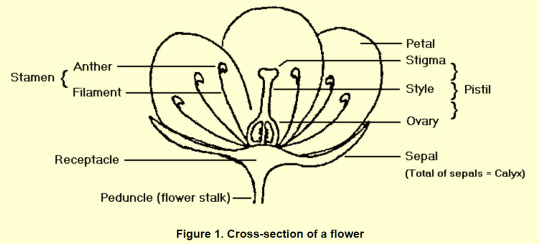
Diagram by the Association of Societies for Growing Australian Plants
[ID: A simple cross-section diagram of a flower. Three petals are visible on the far side, with reproductive organs drawn in the center. There is also a stalk and sepals at the bottom. Along the sides of the cross-section there are labels. On the left, a category called “Stamen” is labeled, with “Anther” and “Filament” pointing to two parts of the thinner reproductive organ. “Receptacle” marks the base of the flower, and “Peduncle (flower stalk)” marks out the stem. On the right, we have the label “Petal” and three labels under the category “Pistil”: “Stigma”, pointing to the top portion, “Style” pointing to the stem-like feature, and “Ovary” pointing to the rounded bottom. The label “Sepal” marks the leaf-like structure just under the petals. End ID.]
Now, when we look at the juniberries we see in canon, we can see that at no point are any drawn with stamens. They all have a single pistil growing from the center, and they’re topped with three stigma, meaning that all juniberries drawn on-screen are female juniberries.
Juniberries are a quintessential symbol of Altea, and they represent home to Allura, as well as what she’s lost. However, they also represent how Allura’s relationship to her own femininity is not some mystical thing determined by forces beyond her. Colleen gifts Allura a juniberry that was selectively bred from flowers she had available, and it’s identical in every way (that we can see) to the juniberries native to Altea. The message, though it’s subtle, is quite clear: Allura is in control of her femininity and can define herself however she pleases (“highlands poppy” versus “juniberry”). After the sexual undertones that threaded her relationship with Lotor, this is a very important message to convey, especially since a patriarchal story would punish Allura for the metaphorical sex in physical ways, such as how the season 8 on Netflix does.
Allura isn’t simply a vessel for male desire, nor is she a strong female character who doesn’t need a man. Her story is about finding agency separate from male expectations, without forsaking her own femininity in the process. Like the juniberry, she is feminine, but she is able to define herself, and the dark entity masquerading as Lotor reminds her of that with their conversation about calling the juniberry a “highlands poppy”. That’s what makes Lotor so dangerous to a traditional patriarchal values system: he reminds Allura that she has a choice.
It’s important to note that during their interactions Lotor never gives Allura a choice in the sense that he, a man, is allowing her one; he simply steps back and encourages her to make the choices to which she is entitled and to act on her emotions and desires. She is an agent of her own free will, and Lotor, being first her Shadow, challenges her to be smarter, quicker on the battlefield, and then as her Animus he challenges her to look inward and become in-tune to her own inner wants and needs. The other Paladins can offer some aid in that, but none of them strike her anxieties or hopes the way that Lotor can, being the crown prince and heir to her sworn enemy, and being half-Altean and half-Galra. He is, in a fundamentally physical way, the union of two races that were at war before Altea’s destruction, and to a survivor of that war, that forces Allura to question the beliefs she held in the beginning of the story. The stakes of success and failure are much higher with Lotor in the picture, and it’s easier to focus literary tension on two characters than five or six, so as a result of that persistent tension, we as the audience are given plenty of chemistry between two characters to spur Eros.
As we discussed last year in “Legendarily Defensive: Editing the Gay Away”, Keith was meant to have a gay relationship with another Paladin. We refuse to write conjecture on what his endgame romance was meant to be, however it is important to discuss Keith’s Eros in a metatextual sense. For example, let’s look at Keith and Shiro. Keith is a legacy character that dates all the way back to 1984 Defender of the Universe. His romantic subplot was relegated to excised footage and extremely subtextual if it managed to squeak past the axe. Shiro was able to be queer, however, due to the fact that he’s a DreamWorks-owned character who is new to the franchise, meaning that there isn’t a legacy that needed to be upheld.
Keith’s queerness, however, still acts as a spur to fuel the potential for Eros, and helps build tension between him and his fellow male Paladins. And I specify male Paladins because during season 2, Keith and Allura go off in a pod by themselves to see if Zarkon is tracking either of them. During the scenes with Keith and Allura together, it’s important to note the background music is remarkably flat and lacking in romantic cues. In prior iterations of Voltron, Keith and Allura are implied as endgame (DOTU), have the beginnings of an on-screen romance (VForce), or straight up just fuck on the page (such as in the comics). It stands to reason that this scene should at least imply some form of passionate chemistry here, but largely it’s two friends confiding in one another and trying to find reassurance as they confess their fears. Keith doesn’t have a moment to admire Allura’s beauty the way we see Lance and Matt do, and Allura doesn’t blush like how she does with Lotor or Lance. Without markers for any kind of Eros, the scene is a quiet moment of contemplation away from the stress, only to be broken by Shiro telling them to get back because the Galra Empire found the Castleship again.
So then where do we see passionate chemistry for Keith? At the risk of starting the ship-war again, his chemistry largely exists with Shiro and Lance. Shiro, narratively, functions as his Mentor, someone to guide and believe in him, who then gives up his position of leadership (sort of) so that Keith can grow. Bringing Shiro back prematurely makes it harder to see, but in a traditional Hero’s Journey, the Mentor figure teaches not-quite-enough to the Hero before disappearing, and the Hero grows on their own and becomes their own person. Naturally, this makes Keith and Shiro have tension, especially since Shiro was brought back prematurely due to marketing, so their relationship dynamic had to change to accommodate Shiro’s return. Lance, however, constantly baits and teases Keith, and Keith frequently rises to it and they argue. They butt heads and don’t have that sense of camaraderie that Keith and Shiro do, so right off the bat there is more obvious tension between the two of them. Eventually, Lance and Keith learn to trust each other, and in season 8 we finally see them settle their rivalry as they prepare to face Honerva. So while Keith’s dynamic with Shiro is more focused on camaraderie and growth, Keith’s dynamic with Lance is more focused on pushing each other to be better warriors and teammates.
Philia: Friendly Love
In VLD, we’re shown that friends can be found anywhere if you’re willing to put down the blasters and try to make them. We’re also shown that just because you’re on the same side of the battlefield, that doesn’t necessarily mean you’re best buddies. Commander Lahn pledges his loyalty to Lotor after his base is saved by Voltron, and Keith and Lance butt heads so often you’d think one would sooner drop the other into a black hole. However, we should never discount the power of friendship, or rather, we should never discount the value of platonic relationships. This includes everything from friendship, to the found family trope, to the mystical bond the Paladins have with their Lions. Philia is the companion’s love, firmly rooted in platonic–and often intellectual–admiration.
Philia, as defined in A Greek-English Lexicon by Liddell and Scott, is “an affectionate regard or friendship, usually between equals”. Where Eros is the fiery passion between sexually-attracted adults, Philia is the platonic love between people who respect and trust each other. This is the love that flows like water, endlessly filling and refilling your emotional needs with good company, good advice, and generally just a good presence. Friendships are the ports we anchor ourselves at when the seas become too rough, and in VLD, where space is the most dangerous frontier and most of the universe is your enemy, friends are more important than ever for our Heroes and Heroines.

[ID: A screenshot of S4E1 “Code of Honor” with Allura, Lance, Coran, Shiro, Pidge, and Hunk sharing a group hug with Keith. Coran, Hunk, Pidge, and Allura are all crying, while Keith, Shiro, and Lance are smiling. End ID.]
Everywhere you look in VLD, you’re sure to find some kind of camaraderie between friends. Lance, Pidge, and Hunk make the Garrison Trio (or as I like to call them, The Planck Constant), and they get into shenanigans together. In fact, it’s entirely likely that had Lance and Hunk not decided to follow Pidge up to the roof, they never would’ve found Shiro, and subsequently Blue Lion. Later, when Voltron has allied with Lotor as the new Galra Emperor, they reprogram a sentry to become the eternally-fantastic Funbot. If you want a prime example of the fun that could be had between friends, those three are quintessential to the definition of Philia. They’re the first Youths you meet in the story, and it’s through their eyes we watch as a far-off intergalactic war comes to Earth at last. The show has us follow them as the audience, and we watch as they meet up with Keith, save Shiro, and then find themselves going from Earth to Kerberos in less than five minutes, and then by the end of their day, they’ve awoken Allura and Coran and are on Arus, thousands of lightyears away from their home.
We see the Paladins go from a rowdy group of teenagers with Shiro as the head to a group of five Heroes and Heroines capable of saving the universe. Lance helps Pidge get all the GAC coins she needs for a video game, and he’s always got the team’s back with his sniper rifle. Hunk always is ready to lend a hand, even when he’s scared of flying Yellow, but when the Taujeerans are in danger of falling into the acid as their planet breaks apart, he’s right there holding them up while the team gets the arc ship ready for takeoff. Our Paladins are the embodiment of the power of friendship, trust, and perseverance, and it’s that tenacity and dedication that should have carried our six Paladins to victory and brought the Purple Paladin back into the light he thought had forsaken him. Black, Red, Green, Blue, Yellow, Purple, and White, together in a bond of pure platonic love. There’s an old phrase I’m sure you’re all familiar with: “blood is thicker than water”. The power of Philia and found family in VLD challenges that notion in the original S8 when Lotor is offered his vindication. “The blood of the covenant is thicker than the water of the womb.”
Pick any two of our main protagonists and you’re sure to find a thread of Philia connecting them, because when you fight together as one, you inevitably become closer as the trust builds between you. In fanfic terminology, this is the root of the found family trope: strangers and friends finding themselves in a gripping adventure together, and discovering that they’re stronger together than they could be apart, and coming to see these people as more than colleagues or acquaintances. They become your family and people to defend, and the people you trust to have your back when it’s time to face down an enemy together.
That’s part of why Keith leaving for the Blade of Marmora is so fractious. He’s growing into a leadership role and obviously accustomed to it, but with Shiro’s premature return, there’s some growing pains as the incumbent leader and the former leader unintentionally butt heads. Keith needs to be in Black Lion without Shiro to complete his growth, but without a way to easily integrate him back into the team without messing with the legacy, Keith has to go. And like with any good friend, when you have to say goodbye, it’s a bittersweet affair. The team doesn’t want him to go, but in-canon he feels he can do more good with the Blade, but the meta reason is that his Hero’s Journey has been arrested. But, like with any good friend, the team is able to reunite with him at a later date and he integrates back into the group. They are wiser to the world, harder, but they are together again. And they need that unity when it’s time to face Honerva and go into battle for not just their universe, but all realities.
Storge: Familial Love
In English, we have many concepts of love, but generally we only treat the single word of “love” as a word for “love”. As a result, we tend to use other words to modify the type of love we mean, which can get things kind of sticky if you talk about X type of love but don’t specify that it’s X type and not Y type. With familial love, it can be relatively understood without being specified, but as you can see by my explication here, I still have to modify the word “love” with an adjective to describe the next kind of love I will be discussing. Storge, the familial love.
A Greek-English Lexicon defines Storge as “love, affection, especially of parents and children”. Storge, unlike Philia, is not a platonic admiration for a companion in the family, however it does denote respect. Storge is also not the idealized unconditional love of Agape (which we will discuss toward the end of this essay). Storge is the instinctive love for those in your family, especially between parents and children. I also argue the key aspect of Storge is that your family–for all the times you want to tear out your hair–will love you for the rest of their lives. And you’ll love them, because they’re people who have your best interests at heart, even if they don’t always express that well.
Coran, Coran, the gorgeous man himself is Allura’s second father figure (after Alfor), but he’s the only father figure for Allura in the show that’s alive. Coran’s protectiveness of Allura is well-documented. He was furious when she got captured saving Shiro, he warns her to be careful healing the Balmera, he worries for her in Blue, but at no point does he actually prevent her from making her choices. He wants her to have a full life, a happy life, or at least as happy as one can be when you’re one of the only survivors of a war. He’s a father through and through, and even if Allura is Alfor’s daughter by blood, Coran is the one who supports her during the most difficult stage of not just her life but the universe’s life. He loves her, he consistently reminds people to respect her and to think of what’s best for her. Not just as a princess of Altea or the heart of Voltron, but as a daughter. Alfor was her father, but he died before he saw her face the trials in the plot. Coran, however, he gets to see her grow into a woman even greater than what Alfor could have ever imagined. The audience might find him a little frustrating (such as in S8E1 “Launch Date”), and Allura takes his protectiveness in stride, but at the end of the day Coran is a gorgeous man with his heart in the right place, even if his execution is a little off the mark on occasion.
The Holt parents are also good examples of Storge. We see Colleen and Sam fight to tell Earth about what’s been going on, as well as finding their children. Colleen herself is a solid mama bear that anyone would want to have fighting for them in their corner, and we can see she gives no fucks about protocol when she’s told she can’t stay on Garrison grounds with her husband.
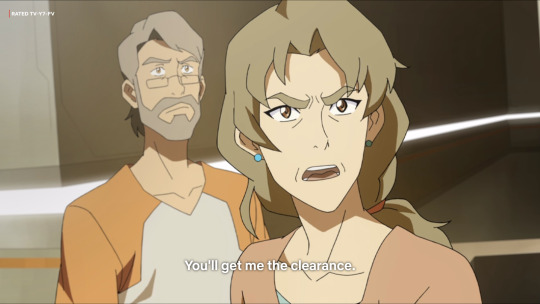
[ID: Colleen Holt glaring, her husband Sam behind her looking equally annoyed. She glares at Admiral Sanda (off-screen) as they argue. The subtitle reads, “You’ll get me the clearance.” End ID.]
While Colleen doesn’t hesitate to ground Pidge for running away to space, the fact of the matter is that she and Sam fought like absolute hell to protect their kids in the ways they had available to them. Storge is the love parents have for their children and these two human characters are the perfect examples of it, even if Pidge chafes a bit under being grounded. Sam and Colleen’s love for Pidge and Matt and Coran’s love for Allura are the perfect avenues to explore how Storge is love, even if it’s frustrating, but they also serve as an excellent foil for how that love can be horribly twisted.
Philautia: Self-Love
In S1E1 of VLD, when our human protagonists meet Allura, Sendak is barreling through open space to their location and hellbent on capturing the Blue Lion. Allura is able to talk to Alfor–or rather, his hologram–to seek guidance in the upcoming battle, and he says, “You must be willing to sacrifice everything to assemble the lions and correct my error.”
With VLD, there’s this idea of sacrifice, of giving your life for the greater good, but when discussing acts of love, we also need to talk about acts of love for yourself. We see many instances of characters sacrificing themselves for the greater good, the belief that their death will bring an eventual victory to the Paladins of Voltron and free the universe. Allura throws Shiro into an escape pod so he doesn’t have to suffer the abuse again, but in the process becomes a prisoner herself. Ulaz gives up his life to save the Paladins and keep the Blade of Marmora base secret. Thace sacrifices himself so that Galra Central Command can go offline and the plan can move forward. Keith nearly kills himself trying to break through Haggar’s barrier at the battle of Naxzella before Lotor intervenes and destroys the ship with a blast from his Sincline ship. Sacrifice is a massive part of the show, and needless sacrifices are always undone, but what message do continuous sacrifices leave us with as the audience? It leaves us with Alfor’s lesson: you must sacrifice everything to correct my mistake.
When you’re writing, one of the most basic things you must do to drive a plot forward is change something significant. In the beginning of a story, Character A might think Character B is wrong and has no idea of what it takes to do something, but then Character B later on needs to surprise Character A by proving they can do that thing or that they don’t need to. It forces Character A and the audience to rethink their initial assumptions, and it encourages tension and dialogue between characters that otherwise might not exist. It’s an internal motivation, and one that audiences will pretty much always find more gripping and compelling than a simple monster-of-the-week scenario. VLD is no different. “All Galra are bad/Altea is good” leads to meeting the Blade of Marmora and Alteans who took over their universe. The challenge to a character’s worldview is what makes turning these initial ideas on their head so satisfying.
So what could challenge the idea that you have to sacrifice everything? Especially to correct the mistakes of someone else?
Love. Not for others, not for family, not even for the greater good.
But for yourself.
To quote Audre Lorde, “Caring for myself is not self-indulgence, it is self-preservation, and that is an act of political warfare.” Philautia is the love in which you put yourself first, not because it’s selfish, but because it’s self-care. Self-love is defined by the Merriam-Webster dictionary as “an appreciation of one’s own worth or virtue” and Philautia has been recognized for millennia as a basic human need by the likes of Maslow and the Ancient Greeks. Recognizing your own needs and worth is a fundamentally radical decision, especially if you are in a position where you’re expected to prioritize the needs of others before your own.
S1E1 of VLD offers us pretty much every worldview that gets challenged later on in the series, except for Alfor’s. We see Alteans can be equally cruel, that Galra are not all evil. Voltron is a great protector, but it is also a great weapon, and Keith even calls it an alien warship in the very beginning, highlighting the danger Blue–and consequently Voltron itself–poses by merely existing. Philautia is not the exertion or prioritization of your desires, but the assertion of your needs. It can easily swing too far into selfishness and vanity, but making yourself heard is never a bad decision, and for those who are marginalized, women, trans people, disabled people, neurodivergent people, nonwhite people, it is an act of defiance. The sins of people in positions of power are not the burden for their victims to bear. If protesting is too much or too burdensome, simply taking the time to care for oneself is enough, because you can’t pour water out of an empty cup. Alfor’s plea to Allura was always meant to be overturned with the finale, especially since she’s facing down the antithesis of everything she believed in season 1. Honerva is selfish, manipulative, abusive, and an Altean woman. Alfor would ask Allura to give up everything she has left to destroy Honerva, but in the original and unedited season 8 Allura would have taken that plea and turned it on its head.
VLD’s Princess Allura is the first and only iteration to be a nonwhite girl and voiced by a black woman. Having her sacrifice herself is an extremely harmful message to little girls of color everywhere because it’s not the burden of girls of color to save the world. Their duty is to love themselves and know they’re able to be as brave and kind and intelligent as they’d like. Princess Allura’s arc is about a girl learning to not shoulder the burden of violence, but instead choosing to relieve herself and choose healing and creation, and in turn, her reward would be the literal universe at her fingertips.
And Allura isn’t the only character to learn to love themselves. Lance, as well, learns to become comfortable with himself. At first he’s comfortable and cocky and immature in Blue Lion, but then as the seasons progress and he finds Red to be more of a challenge, he learns he has to follow through with his actions and decisions. He learns that to fly Red, he can’t hesitate and just has to roll with the punches. He dubs himself “the sharpshooter” of the group, and at first he gets laughed at, but then he saves Slav from being trapped in prison once more by firing and making a near-impossible shot. He doesn’t have to forge ahead and fight recklessly, he simply has to see an opportunity and take it.
All our other Paladins learn to become more comfortable with themselves, as well. Hunk becomes more confident in being the voice of reason, and becomes an A+ diplomat in the process. Pidge is able to open up and be honest with her team about her secrets and fears, and in return is blessed not just with that weight off her shoulders, but the knowledge that her team is her family just as much as Sam and Matt are. Keith, too, learns that he doesn’t have to go it alone all the time. He’s able to relax and trust his team, and rather than burdening himself with doing everything, he’s able to rely on the skillsets of the other Paladins and make them a stronger team by focusing his attention on directing them, as opposed to commanding them.
Another interesting example of Philautia is Lotor himself, who at no point is uncomfortable with his mixed heritage, even when he’s called a “half-breed” or when one of his parents blames half of his heritage for his failings. The main reason that it’s not as blatant is because by the time the story begins, he’s been at peace with his heritage and his place in the Galra Empire for a long time, and thus does not play a significant role until he has his breakdown at the end of season 6.
This form of love is quite possibly the most frustrating, if only because so much of its payoff was in season 8. We should see Allura not give up her life in the name of sacrifice, but rather choose to become a goddess in the name of love. We should see Lance become unshakably confident in his abilities when it’s time to face the biggest bad guy of the series. The final season was meant to be a season won through love, and self-love is quintessential to that victory, because it gives viewers the message that your acceptance of yourself is vital to the world. It’s an important lesson for little girls everywhere to know that their worth doesn’t lie in how much of themselves they can give away, but how much of themselves they cultivate and grow, because if you trust in yourself and choose love, then you’ll be as powerful and strong as Princess Allura. It’s possible to be the brave and chivalrous Paladin while also being the princess who likes the occasional sparkly thing.
The lesson of Philautia in VLD is one of embracing your limits of what you can give, and reminding the world that you matter, because loving yourself is the greatest act of defiance when you’re faced with an enemy who wants nothing more than for you to make yourself smaller, weaker, more amicable if it would please them. It’s the reminder to be gentle with yourself, no matter what battles you face, because caring for yourself is just as–if not more–important.
Xenia: Love for the Stranger
Hospitality is a massive part of many cultures, I personally had a relative (who has since passed) who would always have an open door for the poor families in their neighborhood and the stove would always have something cooking. My own mother will cook especially for you if you need her to. There’s a reason “Southern hospitality” is famous. Good food, good company, and ultimately safety are what sets Xenia among the categories of love as defined by the Ancient Greeks. In VLD, this form of love is very sparse in comparison to love such as Philia, however it’s extremely important that our heroes engage in it. To quote Coran, “70 percent of diplomacy is appearance. Then 29 percent is manners, decorum, formalities and chit-chat” (“Changing of the Guard”). The remaining one percent, which Allura notes, is actual diplomacy and fighting for freedom. That’s essentially what hosting, good and proper hosting, is. It’s taking someone into your home and providing them with material comforts and necessities such as food, as well as non-physical ones like safety or protection, or extending and respecting their rights.
A good host will anticipate their guests’ needs because they have a love for their fellow strangers, and they show that love by providing for them. Xenia is the love of the stranger who has taken up space in your home and respecting their need to do so, but it’s also a reciprocal love. By extending your hospitality to a person, they will be more inclined to do the same for you and yours in the future. In Greece it was a complicated dance of gift-giving and receiving, spurred by the belief that one would incur the wrath of a god in disguise. While offending the gods was a big fear, it’s important to remember that good hosting and good guesting will create a deep bond between both parties because you’re respecting one another. Respect your wayward traveler and welcome them into your home, and they will entertain you with tales from far away lands, and in the future you will find a place at their table. Respect your host and the space they provide you, and you’ll receive gifts and care fit for a god. This giving and receiving encourages goodwill between strangers, and providing care to someone you don’t know is an act of love in its own right.
There’s a rule in American food language: “never return an empty dish”. This rule is especially prevalent in the US South and Midwest regions, but the general idea is that when you meet someone new (i.e. a new neighbor) you bring them a dish of something to welcome them and introduce yourself. You make small-talk, help them get acquainted with the area, wish them well, and then go on your merry way. Then, once your new neighbor has settled, eaten the food you gave them, and had time to make something new, they come knocking on your door and return that dish to you with a new food in it.
That’s a facet of what Xenia can encompass, and we see Xenia acted out in three key ways in VLD: Allura recruiting people for the Voltron Coalition, Lotor hosting the Paladins during their alliance, and Hunk showing his care for others through cooking.
Allura, for all her charms, isn’t that great of a diplomat, especially in the beginning of the story. When she meets the Arusians, she accidentally informs them that their dance of apology isn’t enough, which then makes them think they need to sacrifice themselves on a pyre. She thankfully recovers and lets them continue the dance, and then invites them into the Castle of Lions later. With the leaders of the rebel planets, she has a good presence and is rather suave with her guests, however when attention moves off her and onto the Paladins, and when the question of Voltron comes up, it’s extremely difficult for her to take control of the situation again. The loss of Shiro was fresh, and she really didn’t have a good answer that would reveal they couldn’t form Voltron, so she struggled with taking control back. This isn’t an indictment on Allura, but it is meant to point out how Xenia is not easy to learn. As we follow the Paladins, however, Allura gains confidence in her ability to speak publicly, and as they gather more allies it becomes easier for her to encourage alliances. She goes from panicking and trying to keep Arusians from dying to being able to communicate with allies and command a room. Xenia doesn’t come as naturally to Allura as it does to Hunk, and Lotor has had millennia of practice, but the important thing about Xenia is that you extend your hand and make the effort, even if it’s a little clumsy, because in the end you’re caring about strangers and welcoming them into your home and telling them they have a place at your table.
However, where Allura falls short in Xenia, we see both Hunk and Lotor shine. Let’s examine Lotor’s expertise, first.
Lotor is ten thousand years old, and it’s implied he’s spent much of that time playing the political game of the Galra Empire, as well as learning about other planets. It’s canon that he has a thirst for knowledge, and so couple his curiosity with his need to survive a very blood-driven political environment and you have a golden host forged in fire. It’s difficult to surprise Lotor, since he’s pretty much always two steps ahead of everyone. When he forges an alliance with the Voltron Coalition after his victory at the Kral Zera, Lotor has banners hung that bear the same symbol that Zarkon and Alfor fought under, which also adorns the shield on Green’s back. He specifically sought to recall the good times between the Galra and Alteans, and personally greeted the Paladins on his flagship. He encourages the Paladins to explore and use whatever resources they need, because as their host, Lotor–and by extension the entire Galra Empire–is now at their disposal. He’s the ever-perfect host, inviting his lower-ranked guests to make themselves comfortable, and acknowledging Allura’s rank as princess and personally escorting her along. In a lot of other high fantasy or sci-fi stories, showing the heroes around would get palmed off to a servant of some sort, especially if the host is duplicitous. However, Lotor affords our Heroes and Heroines quite a bit of respect compared to what other characters in his place might do, even going so far as to offer his own personal time to the princess when he has an empire to claim still. Given the canon politics, Lotor logically should have been in constant communication with various officers and securing their loyalty to him, but instead he takes time to approach his new allies and make them feel welcome in the headquarters of their former-enemy.
So while Lotor is arguably the best example of good hosting I’ve ever seen in a show (without it turning out to be some sort of ploy), Hunk’s style of Xenia is equally good if in a different way. While Lotor is shown to essentially be a master of decorum, Hunk is a master in the kitchen and the art of making room for everyone at the table. Hunk has only been in space for a few months to a few years (depending on when in the series we’re talking), he hasn’t had the millennia to research planets and learn all their customs, or train in diplomacy to make up for any lack of education. He’s just a guy from Earth who likes to cook and who especially likes to cook for others. In all prior iterations of Voltron, Hunk has always been “the food guy” or “the slightly dumb, but lovable one”. It’s not particularly flattering, and VLD even pokes fun at how flat his character is historically in “The Voltron Show!” by adding fart gag noises. In VLD, however, we see that Hunk is intelligent and brave, if anxious, and he’s more at home in a home than he is in a Lion. Hunk is a good Paladin, but he is quite possibly the best diplomat in the whole show.
A large part of Hunk’s diplomacy lies in listening. When he’s out in the field, he’s quite possibly the best listener out of the entire team. When there are guests on the Castleship, or when the Alteans are on the IGF-Atlas, he doesn’t just listen, he welcomes them. In scenes from season 8, we really get to see this shine, because as Hunk says in “Day Forty-Seven”, “food has a way of reminding people of moments in time.” Bringing good memories with food can go a long way to putting stress and anger behind people.
Every person has a dish that, when prepared, makes them relax and think of happy memories. In Hunk’s kitchen, everyone eats, and nobody is unwelcome. Whether you’re Commander Lahn and working with Hunk to save your planet from devastating radiation, or you’re an Altean who just wants what’s best for your people, Hunk will meet you halfway and try to see things from your perspective, and offer you a cookie because he feels like it. Hunk’s Xenia is not wrapped up in protocol or etiquette. His Xenia is found just across the kitchen table, with a plate of warm food and a friendly conversation, ready to listen to your troubles and offer a hug, if not a solution.
Agape: Unconditional Love
Now that we have discussed the five prior categories of love as defined by the Ancient Greeks, let’s examine Agape, which can be difficult to conceptualize. “Agape” originates a Greek term, however it wasn’t used very often until Christianity came into the picture, and thus it encompasses far more than even xenia does, because while Xenia is love in the form of courtesy to travelers, Agape’s prevalent definition stems purely from the idea that God loves everyone unconditionally. In fact, “agape” is the term used in the Bible to describe the unconditional love of God, but when you translate it to English, the word simply becomes “love”, losing the weight that it carries in Greek.
The idea of unconditional and divine love is not unique to Christianity or the Ancient Greeks. Throw a rock in any direction and I’m sure you’ll find a culture with a similar concept to Agape. The key aspects of unconditional love is that it is sexless–meaning attraction is unnecessary to feel Agape–and that it is founded in goodwill for others. It feels cheap to throw the quote “love thine enemy” around in this section, because that discounts the importance of Philautia as we discussed it earlier in this essay, but at the end of the day that’s what Agape means. The Bible–which influences much of the definition of this kind of love–would have people forgive the ones who do them wrong, but forgiveness does not mean forgetting, and loving someone doesn’t require forgiving them either.
In VLD, a man loved a woman so much he tricked his closest friends and allies into opening a rift in an effort to save her life. In the process, they both died and revived, cursed with immortality and a thirst for destruction. Zarkon was a man who loved Honerva so much that he doomed the known universe to 10,000 years of his tyranny. Honerva, when she regained her memories, sought vengeance against Voltron for not just losing her son, but also because she blames everyone around her for being the reason why her own son rejected her time and time again. Honerva is the antithesis to Allura in pretty much every way, and in the edited season 8, Lotor is condemned to a cycle of abuse because he’s never offered an opportunity to speak, just like how he was violently silenced by his mother when he disobeyed his father on the colony planet in “Shadows”. Honerva, however, is not.
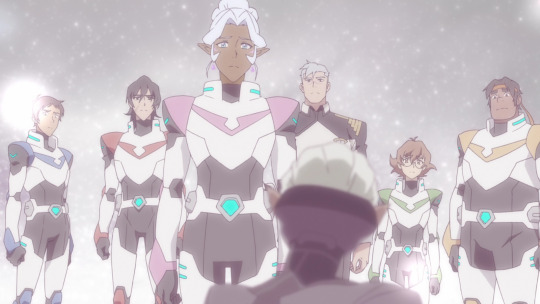
[ID: A screenshot of S8, featuring from left to right: Lance, Keith, Allura, “Shiro”, Pidge, and Hunk. They face Honerva, who is facing away from the audience so we see the back of her head and suit. Screenshot from “Seek Truth in Darkness”. End ID.]
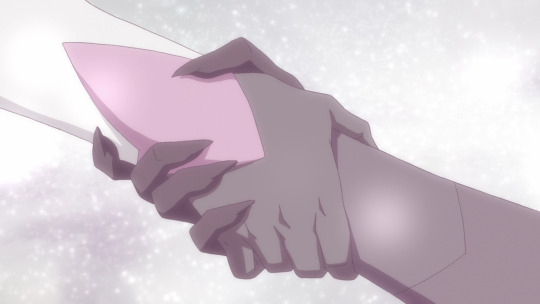
[ID: A shot of “Allura”’s hand grasping Honerva’s wrist and vice versa. Screenshot from “Seek Truth in Darkness”. End ID.]
Allura being a paragon of growing into Philautia gives other characters the ability to do the same, but as @leakinghate notes in “Seek Truth in Darkness”, that is not Allura’s hand, just as that is not Shiro next to Allura in the prior screenshot. Allura is not the one who was most wronged by Honerva. She was asleep and hidden from the universe. Lotor, however, was subjected to centuries of abuse by the hands of his parents.
Agape is a complicated love, one that requires a person to be able to love everyone unconditionally, but love does not necessarily mean “forgive and forget”. It’s important that Allura impart the enlightenment she gained on her Heroine’s Journey, because this is the point where she can be at peace and claim her cosmic reward, but she cannot do so without the person who was most wronged being able to face his oppressor: Lotor.
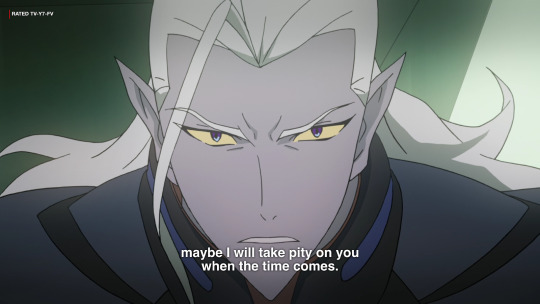
[ID: A close-up shot of Lotor glaring at the audience, with the subtitle text reading, “maybe I will take pity on you when the time comes.” Screenshot from “Seek Truth in Darkness”. End ID.]
As @leakinghate pointed out, Allura is the one to use her abilities to restore Honerva’s sense of self, but Lotor being present makes this confrontation all the more poignant and intense. This is the opportunity for us to see Agape in its full glory, but with the edits to the final season it’s a pale shadow of what could have been. The universe is about to be reborn because Allura and Lotor stay behind to repair the rift in all realities. We need that Philautia that Allura is able to embody, but we also need Agape. We’re shown countless times throughout the show that good and evil are not so clearly delineated, and that there are shades of gray everywhere. Lotor has been hurt so much by the one person alive who should have loved him unconditionally.
And rather than continue the cycle of abuse and take vengeance, he chooses to let go. We should have seen him take his power back, not in a godly or violent sense, but his power over his fate. He is not his father. And he is not his mother. He is more. By confronting her in this rift of all realities, we see the foreshadowing of season 6 come into full swing and while we are missing much of that original sequence between him and his mother, it’s important to realize that regardless of the content that was removed post-production, he takes pity on his mother in a sense. She’s a flawed person who made bad decisions. He does not owe her forgiveness, and he does not owe her love, but in her finally letting go of not just him but all the spirits of the original Paladins, Lotor himself is able to be free to love in the way he was denied: unconditionally.
The universe needs people who love themselves enough to choose a path of peace, and it needs to be made with the unconditional love of a parent, a friend, a lover, a god. It needs the eternal goodwill of its new creators because the people of the new universe will fuck up. They’ll make mistakes and hurt each other and Weblums will eat planets and the circle of life will continue. But being able to look at the fucked-up universe and say “I love you” is a power that not many have. It takes courage to look at the universe that has wronged you, wronged billions, hurt the found family that’s accepted you, and still find a way to love it.
The new universe is made of love just as the old one was. It’s made with passion, for friends, for family, for strangers, and for yourself. It’s made by people with love and hope and the intent to make the world they live in a little better every day. And that, ultimately, is the true love that spurs the story of VLD forward.
Stay tuned for a companion meta soon, in which we will discuss these forms of love and how they can be twisted and taken to unhealthy extremes.
Works Cited
Dos Santos, Joaquim and Montgomery, Lauren. Voltron: Legendary Defender. Netflix.
LeakingHate, et. al. “Legendarily Defensive: Editing the Gay Away in VLD”. Team Purple Lion. 12 Mar 2019. Web. https://www.teampurplelion.com/gay-romance-cut-voltron/
LeakingHate, et. al. “Seek Truth in Darkness”. Team Purple Lion. 2 Mar 2019. Web. https://www.teampurplelion.com/seek-truth-in-darkness/
Liddell, Henry and Scott, Robert. “Eros”. A Greek-English Lexicon. http://www.perseus.tufts.edu/hopper/text?doc=Perseus%3Atext%3A1999.04.0057%3Aentry%3De%29%2Frws
Liddell, Henry and Scott, Robert. “Philia”. A Greek-English Lexicon. http://www.perseus.tufts.edu/hopper/text?doc=Perseus%3Atext%3A1999.04.0057%3Aentry%3Dfili%2Fa
Liddell, Henry and Scott, Robert. “Storge”. A Greek-English Lexicon. http://www.perseus.tufts.edu/hopper/text?doc=Perseus%3Atext%3A1999.04.0057%3Aentry%3Dstorgh%2F
“Self-love”. Merriam-Webster Dictionary. https://www.merriam-webster.com/dictionary/self-love
Payne, Will. “Botany for the Beginner”. Australian Plants Online. 2006. http://anpsa.org.au/APOL2006/aug06-s1.html
Potter, Ben. “The Odyssey: Be Our Guest With Xenia”. Classical Wisdom Weekly. 19 April 2013. Web. https://classicalwisdom.com/culture/literature/the-odyssey-be-our-guest-with-xenia/
@leakinghate @crystal-rebellion @felixazrael @voltronisruiningmylife
57 notes
·
View notes
Text
FowlPlayAU (aka Miraculous Peacock Marinette AU)
Literally no one asked but I don’t care. An AU in which Marinette holds the Peacock Miraculous
This actually developed from a few different threads that I tugged on over the course of a few months.
I guess the starting point for this was probably the season 1 episode “Simon Says” with the very short but profound moment of understanding between Gabriel and Ladybug over the pedestal they both placed Adrien on and the subsequent really, really heavy handed comparisons everyone kept making towards everyone else about who resembled Emilie the most
Basically I thought this episode was the heaviest seed in the narrative of the parallels between Gabriel and Marinette, both fashion career focused workaholics who take way to much responsibility on their own shoulders and get obsessive to the point of destructiveness over their respective, similar love interests, and using those parallels as a point of interest in showing both Marinette's growth as she moves beyond that destructive mentality and towards regarding Adrien as a person and how Gabriel’s “love conquers all” mentality isn’t an inherently positive thing but no. *sigh* no, they needed more screen time for one time characters. It fleshes out the world,yes, but not the characters. LOTS of interesting long term threads were dropped in favor of broadening the cast to try and shoehorn that “kid superhero group” into the show that was originally tossed. Basically I’m saying that I do think Gabriel and Marinette have enough in common to surprise some people, including each other, and I’m a sucker for intergenerational friendships
The second main factor was the small subplot at the time of Gabriel suspecting Adrien of being Cat Noir. I got really interested after “Gorizilla” about what might actually happen if Gabriel did figure out that Adrien was Cat Noir at that point in the series (I have words about Cat Blanc, trust me. No those words aren’t “throw the whole mess out the window” because I actually love it. But many, many words) Going off the heavy handed implications that Emilie was the former Peacock, I thought it would be interesting, and in character, for Gabriel desperately analyze his son’s behavior as Cat Noir, trying to figure out WTF Adrien thinks he’s doing, only to realize that Cat Noir has some pretty obvious affections for Ladybug. This is unacceptable of course, but understandable in a “he’s a hormone ridden, teenage boy, and Gabriel was once too the same sort of boy in love with the same sort of heroin” sort of way. The obvious answer to getting rid of what is the only possible obstacle for his son’s cooperation (I was going off the pilot with the potential of Cat Noir as a Hawkmoth agent because of their familial connections) is to get rid of his affections, and since it has to be shallow, he’s too young and also Gabriel controls his whole life so it can’t be love, then all he has to do is shift his son’s affections. Cue an uncomfortable number of episodes in which Gabriel subtly inserts a B plot into his Akumatized villains by trying to push various girl together with his son in carefully controlled circumstances. Because this is before Kasumi, and again, those nice parallels between Marinette and Gabriel himself, he eventually after trial and error settles on Marinette as the perfect candidate. Thus, we get a series of hilarious situations in which Marinette and Adrien are pushed more and more into high pressure uncomfortable and intimate situations, losing time and ability to turn into their superhero personas as a natural deterrent to power creep and justifying the use of other Miraculous users a lot more.
I saw someone comment in one of their author’s notes on a fic a long time ago that they hated the trope of Marinette being an emotional Atlas and my instantaneous internal response that that kinda WAS Marinette's character early series, especially the origin episode, and that a lot of the most prevalent fics were written in that time period, and that really intense response from me really stuck.
Peacock aesthetic. yup, that alone gets an equal piece of the pie
So yeah, if any of that interests you, keeping in mind that on top of potential sympathy and understanding of his actions, Gabriel is still absolutly a shitty person, then the actual (canon divergent) AU is under the cut.
The actual thing diverts during Stone Heart, in which the moment Marinette decided to become Ladybug for realsies rather than try to faust it off Alya doesn’t happen. Rather than deciding to put on the earings, Marinette distracts the monster enough they can get away. Alya finds the earings, and takes up the Mantle of Ladybug.
This decidedly marks a regression in Marinette. Where as Ladybug, and with Tiki’s constant assurances and influence, Marinette learns to work past her urges to take responsibility for everyone’s emotions, Marinette has now lost that constant companion, and has to deal to with her new best friend’s time being diverted
Cut forward to “Stormy Weather” and Marinette has fallen into a vicious cycle of guilt. The little creature had told her it was her destiny to be Ladybug. And while we know that the situation with Hawkmoth is not much different than it is in canon, Marinette is totally convinced that the only reason Hawkmoth is still around hurting people is because she rejected the call. That guilt has built into a feeling of impotent inadequacy that convinces her that she’s no longer deserving of the Ladybug roll, and so she’s both unable to do anything, and responsible for Hawkmoth still being around.
The most prevalent of episode changes is Lady Wifi. It’s Marinette who’s akumatized, not Alya, and it’s a fairly traumatizing, but empowering experience for Marinette.
The ultimate culmination of this is this universe’ “Volpina” episode, where, in the background of main battle events, Marinette gains an understanding of the suspicions that Gabriel might be Hawkmoth, and in the climax of the battle, believing Adrien in danger, she confronts him, confirming his alter ego.
In a scene I have no time to actually extrapolate on, if your curious, just ask, Gabriel and Marinette come to a tentative understanding. He’ll give her the powers to protect his son, and she’ll actually have some sort of control in her life again. This akumatization takes the form of a faux Peacock Miraculous.
This marks the first half of her partnership as an antihero with Hawkmoth. (and yes, I do have the mechanics of how he can akumatized more than one person at a time without Catalyst, which will be extrapolated upon request, but this is long enough already)
Again, I wanna draw attention to those Sweet, Sweet Marinette and Gabriel parallels. Gabriel, through half truths and carefully peppered moments of emotional manipulation and practiced vulnerability, attempts to B plot Marinette into stealing the Miraculouses. Believing herself to be at least somewhat in his thrall, Marinette allows herself to empathize with his plight, and they build a surprising, if strained, raport.
After discovering that she is not, in fact, under Hawkmoth’s control Marinette rebels just long enough to have Hawkmoth take back his Akuma, and Marinette caves the next time Adrien is in Genuine Danger, stealing the real Peacock Miraculous and using it.
This marks the second half of their partnership, and Hawkmoth reveals that the miraculous is broken, and Marinette is now dying from it’s use, and that her only choice of survival is to help him make his wish. This evens out the power balance, at they both now have the same goals and powers independent of each other, but also ups ante.
That’s the most tldr general of overview, with other more specific highlights like
Ladybug!Alya having to reach her own emotional maturity, her earlier stint as a hero leaving her with a much bigger ego in terms of how she perceives her impact of the morale of the city and where her priorities lie in trying to boost that morale vs her personal needs. Ladybug!Alya tries too hard to take notes from already established heroes and public images. She still runs the Ladyblog, Spiderman style.
After quickly realizing (after some confusion) that the Ladybug he fought Stoneheart with the last time is not the same as the one he fought the first time with, Adrien gets a big old case of the pining sighs
Early series Adrien and Alya are both not the type to value secret identities, and so yes, they do reveal said identities to each other fairly early.
They also can both keep a fucking secret, so it works. They are secret BFFs
After the first time Adrien is rescued by the mysterious Peacock Holder, he figures out that whoever she is, she’s the original Ladybug, and more and more ends up distracted and drawn away from fights by her, the perfect reason for Alya to have to bring in other miraculous users. (the interactions tend to take place on moonlit balconies. There’s heavy Pilot influences here)
Marinette does this thing where she spreads her fan when she’s startled and hides her face. Mostly because Cat Noir wont stay out of it. The miraculous’ memory means she tends to fan speak a lot. Symbolism
Speaking of symbolism, the character designs are rife with them. I know exactly what Peacock Marinette looks like and there’s a reason for everything.
The subplot where (inspired by the pilot) Cat Noir finds out that there used to be a curse on the ring that could only be lifted by a kiss from Ladybug (thanks to her creation/retcon powers). Cat Noir convinces (inaccurately) himself that his destruction powers can totally do something similar with Hawkmoth’s mind control now all he needs is to kiss the Peacock user and she’ll be free! She’s totes not a bad guy!
Yes, Marinette does get a different miraculous ala being an episode helper, and her emotions are complicated about it
And other fun tidbits. This got way to long but I’m more than willing to extrapolate on anything more specific that anyone is curious about
35 notes
·
View notes
Text
A 600 Word Essay on Nine x Rose in "Father's Day"
...because I'm extra.

I think a lot about Nine delivering the line "tell me you're sorry" to Rose. And I think there are so many ways you could interpret that scene.
There's the niggling daddy issues that always seem to linger underneath the surface for those two, and maybe this scene is a moment of him taking it upon himself to be the bigger man - the mature one, the 900-year-old grown adult. So, all he asks of her is an apology. He's setting an example, maybe. He could be trying to make her a better person, but in the gentlest way possible.
Maybe he's being gracious, because he thinks it's how she'd act in his place. Rose may suffer from the typical human inconstancy, but she seems pretty forgiving, particularly of aliens - for example, the Dalek from just a few episodes ago.
Or maybe he's just being a daft alien who doesn't really care to hold grudges. As the infinitely wise Elizabeth Bennet once said, "in such cases as these, a good memory is unpardonable." Maybe he's just quick to forgive.
But I think there's something else at play there. I think he just asks for an apology - with no conditions, no reproaches - because he realizes that, if he alienates her, he has no one. He can't bear his only friend being angry with him. He can't risk losing her, especially not to an argument. (Much like the one they have earlier in the episode, where she says, "I know how sad you are." And wow, what a nice bit of knife twisting that is. Damn, Rose, the guy involuntarily committed genocide, stop being petty.) Since he's clearly in love with her, the pain of being alienated from her would be even more acute. Losing her would be devastating - set back his emotional recovery from the Time War, turn his travels into a trudge through time. I think he is genuinely horrified at the prospect of losing her.
Most people are aware of the distinct power imbalance of the Doctor and his companions, particularly someone as "average" as Rose. But I think that this scene displays the tremendous power that Rose has over him, as his sole post-war companion. He may be the pilot, the alien expert, the seasoned traveler, and her elder by hundreds of years, but she has intense emotional sway over him. She's kind of his moral compass, but more than that, she's someone who truly believes in him. Thinks he can do anything, be anything. I mean, just one puppy-eyed stare from her sends them back to her parents' wedding, somewhere he clearly has no interest in going. Another sends him to the scene of her father's death. And a third brings them back there again. Despite all the risk.
I think this scene shows him understanding the nature of Rose's power over him, and acknowledging it, and submitting to it - all while keeping his "I'm the Lord of Time, thank you very much" dignity about him. He just wants an apology - wants to know she cares for him enough to admit she's wrong - and when she gives it readily, he forgives her in an instant.
I'm not sure where I was going this, except maybe to conclude that Rose and the Doctor aren't as imbalanced as they seem. And maybe they both really, really need one another. And that Nine is a vulnerable sweetheart who needs to be protected at all costs. And that Nine x Rose are the best.
Yes, I think that's it. They each have power over the other, and they use it well.
#doctor who#rose tyler#ninth doctor#nine x rose#doctor x rose#rewatch#doctor who rewatch#i spent way too much time on this#i think too much
7 notes
·
View notes
Text
Hrrmph! A Hartnell Era Meta
I’ve just finished the William Hartnell’s run as The Doctor and the first Doctor’s run in Doctor Who, so I figured I’d write a meta about the characters and the acting instead of the production.
So, let’s start off with the man who would make sure Doctor Who shone like the star it’s meant to be:
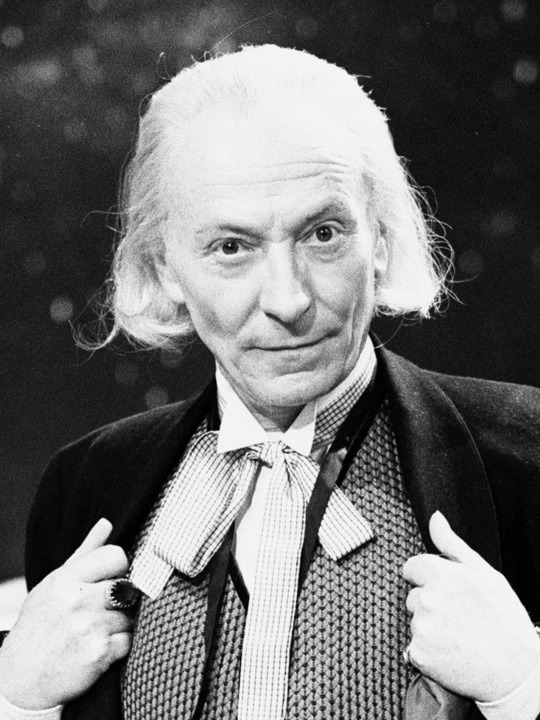
Have you ever thought what it's like to be wanderers in the Fourth Dimension? Have you? To be exiles? Susan and I are cut off from our own planet - without friends or protection. But one day we shall get back. Yes, one day.
William Hartnell was the perfect choice for Early Doctor Who. We first meet the Doctor in An Unearthly Child and he’s a far cry from the man we’re used to be. This is The Doctor at the very beginning of his life and he has yet to understand the compassion that drives him and his future incarnations. He kidnaps Ian and Barbara (more on them later) and whisks them away to the stone age, and during their first adventure he almost kills a caveman!
In The Daleks he purposefully sabotages the TARDIS just so he can explore this strange planet that he’s never been too before, the gall! He starts to soften overtime during the first season but The Aztecs give one of Harnell’s most memorable lines: You can't rewrite history. Not one line!
By the end of Season 1, he’s come to think of Ian and Barbara as family just as much as Susan is his granddaughter. His character has been evolving over the stories and Hartnell is a master performer, able to bring the character to life with his indignant outrage, soft and gentle, and later down the road absolute comedy gold.
With Season 2 comes a changing of the guard. Susan (more on her later) has left the TARDIS on Earth and that leaves the Doctor, Ian, and Barbara traveling alone for an unknown amount of time.
Then in The Rescue comes a series tradition: The Orphan in the TARDIS. Vicki is all by her lonesome in the 25th century until she meets Ian, Barbara, and The Doctor. From then on she’s practically adopted by the Doctor.
Vicki coming aboard provides a vital element towards The Doctor’s character. Gone are the days where he’s a rough and calloused old man, instead he treats Ian and especially Barbara like his own children, doting on them and constantly making sure that they’re alright. When Vicki comes along, his mischievous side comes out. You can feel the chemistry in the actors when he’s on screen with them, and The Romans highlights how glorious Vicki and The Doctor’s relationship is.
That is until The Chase happens and we’re suddenly losing Ian and Barbara. The Doctor is devastated, he sounds heartsbroken. “I HAVE TRIED FOR TWO YEARS TO GET YOU TWO BACK HOME!” He’s roaring at them in total anger, calling them idiots and stupid but we at home know how much he’s hurting. Vicki promises that she won’t leave and that she’s staying with The Doctor, and in turn gain a new companion: Steven. (Definitely more on him later)
The final episode of Season 2 is “The Time Meddler.” And this is extremely important because it shows off for the first time another member of The Doctor’s species: The Monk.
The Monk has already changed history, and instead of a villain he’s more treated like a naughty child. The way The Doctor giggles and hoots with the Monk before rounding on him in righteous anger is a treat to see.
Now we move onto Season 3, where most of his stories are lost but they are some of his best. The Myth Makers shows Vicki being lost to the Trojans in a whirlwind of chaos, and it’s just Steven and The Doctor in what is doubtlessly the masterpiece of Hartnell’s first era: The Dalek’s Master Plan
The prologue of Mission to the Unknown sets up the scene of what is one of the grandest stories and shows how desperate Doctor Who was to push the envelope and go to such exotic locations. Galaxy 4 already took us to an alien world, and sooner than that was The Web Planet, but the Master Plan shows everything coming together.
Hartnell is in top form here, but the devastation weighs heavy on his heart. “ What a waste. What a terrible waste.” And we see him at his most broken and defeated in The Massacre with a somber soliquity after Steven storms out of the TARDIS:
“My dear Steven, history sometimes gives us a terrible shock, and that is because we don't quite fully understand. Why should we? After all, we're too small to realise its final pattern. Therefore don't try and judge it from where you stand. I was right to do as I did. Yes, that I firmly believe. [Steven leaves the TARDIS] Steven... Even after all this time, he cannot understand. I dare not change the course of history. Well, at least I taught him to take some precautions; he did remember to look at the scanner before he opened the doors. And now, they're all gone. All gone. None of them could understand. Not even my little Susan. Or Vicki. And as for Barbara and Chatterton — Chesterton — they were all too impatient to get back to their own time. And now, Steven. Perhaps I should go home. Back to my own planet. But I can't... I can't... “
Soon after that, Steven returns and the infamous Dodo Chaplet joins the TARDIS, and his character quickly returns to the grandfatherly figure we all know and love.
I would like to skip ahead to his final story, and one of the most important in Doctor Who history: The Tenth Planet. Not only does it introduce the Cybermen, but it introduces the one concept that would change the foundation of the show forever: Regeneration.
In hindsight, the signs seem to be there. The Doctor was at the heart of The Dalek’s gigantic time bomb in The Master Plan and during The Savages he’s had his energy drained more. Maybe one starts to think this was planned.
“This is not the end...” He staggers towards the TARDIS and changes into a new man. He started out as an old grump in a junkyard, but he leaves with his head held as high as he can, the warm and loving grandfather.
Of course, no Doctor is complete without his companions, and The Doctor has plenty of them. Let’s start with the first of them: His own Granddaughter, Susan Foreman.
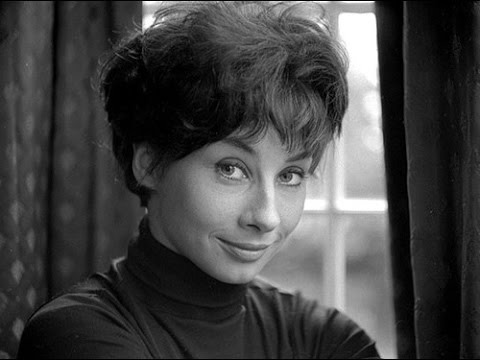
Grandfather and I don't come from Earth. Oh, it's ages since we've seen our planet. It's quite like Earth, but at night the sky is a burned orange, and the leaves on the trees are bright silver.
Susan is a bit of an oddity. As the first companions along side Ian and Barbara, her time in the TARDIS is mostly unmemorable. I’ll be honest, the writing at the time never gave her the type of character she was meant to be. She would scream her head off like a frightened little girl and cling onto the adults for dear life.
We see later on that she’s starting to grow up, but her departure is perhaps her most famous.
The Doctor: During all the years I've been taking care of you, you in return have been taking care of me.
Susan: Oh, Grandfather, I belong with you!
The Doctor: Not any longer, Susan. You are still my grandchild and always will be. But now, you're a woman too. I want you to belong somewhere, to have roots of your own. With David, you will be able to find those roots and live normally like any woman should do. Believe me, my dear, your future lies with David and not with a silly old buffer like me. One day, I shall come back. Yes, I shall come back. Until then, there must be no regrets, no tears, no anxieties. Just go forward in all your beliefs and prove to me that I am not mistaken in mine. Goodbye, Susan. Goodbye, my dear
How does one speech dictate how a show will continue on? Susan’s importance in the episodes themselves might not have been very memorable, but it’s her departure that changes something in The Doctor. She isn’t someone to be coddled anymore, and even though it rips his hearts apart, he has to let her go. The scenes where he’s asking for Susan to fiddle with the controls and realizes she’s no longer there, it’s disheartening. Without Barbara and Ian, he’d be lost. Speaking of which...

Ian: There is someone coming.
Barbara: Goodbye, Doctor! Thanks for the ride.
Ian: Yeah, it was fun, Doctor. goodbye.
If The Doctor is the soul of the show, then for the longest time Ian and Barbara were the heart. It is impossible to talk about one without mentioning the other due to how influential they are to this show. As I mentioned earlier, during their first adventure with The Doctor he kidnapped them and whisked them away throughout time and space. It’s Ian who first changes The Doctor’s ways and turns him into the moral champion of justice we would come to know him as. It’s Barbara who gives him a good tongue lashing when Ian is out.
These two represent everything a companion should be. Smart, Dependable, and Curious. Every time Ian fights for his life for his friends, you can feel the desperation and later the joy when he wins. When Barbara believes they should help, no force in the universe will get them to stop.
Ian and Barbara quickly become family to The Doctor, and helped shape his moral compass that can be felt even into the current series. The ending scene in The Chase where they’re frolicking about modern London and just enjoying being home is a fitting send-off for two of the best.
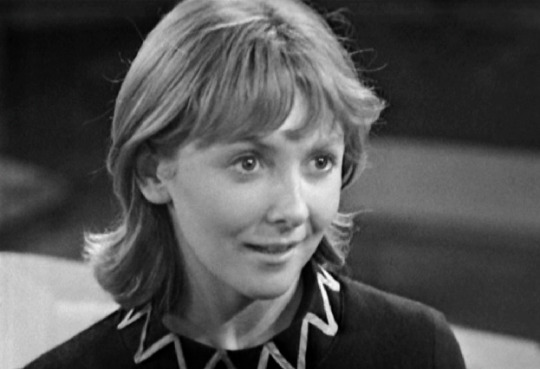
After all. That's why he went out there, to find out where we are. Anyway, that man looks quite friendly now. He's probably showing him to the nearest town.
The changing of the guard is a difficult thing. While I have no doubts that Ian and Barbara could have carried the show beautifully, they too had to leave at some point. Before that though, they brought the beautiful and clever Vicki aboard the TARDIS.
Hailing from the 25th century, Vicki marks a turning point in Doctor Who. She is the first companion to willingly be brought aboard during Hartnell’s Era (something literally every other companion bar Susan cannot lay claim too) and her chemistry with Hartnell is instantaneous.
Although there are some moments where she’s nothing more than Susan Lite, Vicki quickly marks out her own character by being everything Susan should have been. She’s witty, funny, and bursting with curiosity. One of her finest adventures is in The Romans, a hilarious tale where she and Hartnell get along like a pair of mischievous school children, off to the capital and leaving the old fusspots lazing around.
Vicki was there on the cusp of a turning point, and her absence is painful and noticeable during The Master Plan and her mere prescience is sorely missed. Mercifully, we have in my opinion one of the First Doctor’s greatest companions.

What a gorgeous specimen Peter Purves is. He is not only one of the longest male companions The Doctor had (Jamie has taken that spot) but he is one of the best early ones. Steven Taylor is one of if not the best companion the 1st Doctor had. He’s hot-headed, rash, trusts the Doctor implicitly but he’s not afraid to give him a good yelling when it boils down to it.
Season 3 was a transformative year for Doctor Who. They were throwing everything at the wall to see if it stuck, with Steven being the sole constant through a whirlwind. His anger and grief after The Master Plan over losing both Katarina and Sara is palpable, and the sheer frustration about The Doctor’s insistence to keep History on course is ultimately forced him out.
“Oh, no. You just sent her back to her aunt's house where the guards were waiting to catch her. I tell you this much, Doctor, wherever this machine of yours lands next, I'm getting off. If your researches have so little regard for human life, then I want no part of it.”
During Him and Dodo’s run, he’s treating her like an exasperated big brother, scolding her and making sure she’s safe. During The Gunfighters we show off his impressive singing ability! Purves as an actor could do it all, providing the seriousness and drama when required and later making us bust a gut with laughter.
It’s only fitting that Steven is picked to make peace in The Savages and thus end his time in the TARDIS. His absence in my opinion is most noticeable even as new faces come and go.
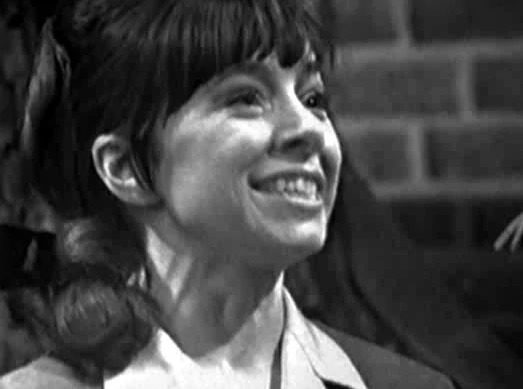
No, it isn't. I'm crying this time.
Oh boy. The Infamous Dodo Chaplet. Is she really as bad as they say she is? So much so that she’s most famous for dying of an STD and getting gunned down. No one can seem to have a high opinion of her, and I find myself in the middle.
I don’t believe Dodo was an awful character. The Celestial Toymaker has shown however her almost incredulous stupidty but it’s marred by other stories such as The Gunfighters that dare I say she was even competent. She burst from the TARDIS full of gusto and adventure and she could shine when the time is right.
She had the second shortest run of any of The 1st Doctor’s companions and it’s most noticeable in her departure. Not a proper goodbye, just a not stating she’d like to stay home. I feel like if given more time, she could have been remembered more fondly.
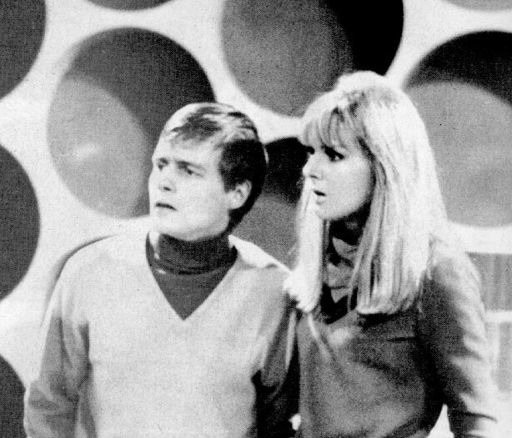
Ben: Hey, come on Doctor, wakey wakey! It's all over now.
Polly: Doctor?
The Doctor: What did you say, my boy? It's all over. That's what you said. No, but it isn't all over. It's far from being all over.
Ben: What are you talking about?
Now, Ben and Polly are most famous for being the 2nd Doctor’s companions, but they got their start in Hartnell’s Era and my word do they shine wonderfully. With only two stories under their belt with the 1st Doctor it’s agnozing we never saw these three together more because the results are wonderful.
Both Polly and Ben’s performers are so full of emotion and character you can forget that they’ve only been with the TARDIS for two adventures. The Smugglers is a wonderful piece of storytelling that sets us up nicely for The Tenth Planet, and that serial really shows off how wonderful these two are. Polly’s indignant objections to the Cybermen and Ben’s clever methods of stalling and defeating them prove why they are instrumental for the 1st Doctor’s final installment. They’re a wonderful representation of the Swinging Sixties coming to life in the TARDIS and on Doctor Who.

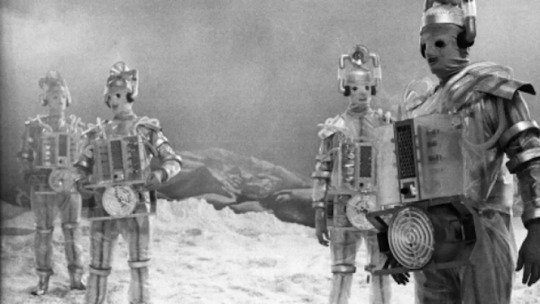
Dalek Supreme: Rebels of London, this is your last offer - our final warning. Leave your hiding places. Show yourselves in the open streets. You will be fed and watered. Work is needed from you... but the Daleks offer you life. Rebel against us and the Daleks will destroy London completely. You will all die. The males, the females, the descendants. Rebels of London, come out of your hiding places.
Cyberman: You must come and live with us.
Polly: But we cannot live with you, you're different! You have no feelings!
Cyberman: Feelings? I do not understand that word.
Doctor: Emotions! Love! Pride! Hate! Fear! Have you no emotions, sir, hmm?
For every good hero, there must be a good villain. And early Doctor Who gave us two of the best and most memorable.
I’m not saying that the Daleks and Cybermen are the only baddies Hartnell Era Doctor Who produced that’s highly memorable. The Monk, the Celestial Toymaker, the aliens in Galaxy 4, there is a long line of baddies that are just teething with possibility. But these two are the most famous.
The Daleks are a frightening force in the galaxy. First brought onto Skaro in The Daleks, they quickly established themselves as a universal threat with The Chase and finally The Dalek’s Master Plan. During both of the latter stories, the Daleks relentlessly pursued The Doctor and companions and carved a bloody gash through time and space that would forever leave audiences shaking at the core at how terrifying the Daleks could and ought to be.
The Cybermen, while primarily famous for later serials, also had such a strong start. Trapped in a base in the antarctic, the first ever Cybermen are sympathetic and mean to the core. Mondas is dying, and they are desperate to save their home and survive. They have no emotion, for they do not need them. They resist the heat, the cold, and suffer no pain.
The humanity has been stripped by the early Cybermen, but ghastly images still remain. A human eye clearly visible, the human-hands and the bulk machines. The Cybermen were a representative of what humanity could become if pushed far enough to the brink. Their first and only outing with the 1st Doctor is bone-chilling. Marvelous work.
In Conclusion...
Doctor Who started out as an educational show. That’s why the shift between historical and science fiction was so great, and why ultimately a science and history teacher (Ian and Barbara respectively) were the first ever companions because their job was to teach the audience.
But Doctor who grew into something more than that, and through the years of William Hartnell’s time as the Doctor we visited breath-taking locales, explored strange and wonderful ideas, and in hindsight, saw the birth of a series that’s still going strong to this day.
Please watch the 1st Doctor’s run, I had thought that I would despise it, that the special effects would be old and hokey and the acting would be of similar quality. How wrong I was. If you’re willing to look past the budget and the cheap costumes, you will find something brimming with intelligence and life like no other.
Thank you for reading this. :)
#Doctor Who#1st Doctor#Ian Chestertone#Barbara Wright#Susan Foreman#Vicki (Doctor Who)#Steven Taylor#Dodo Chaplet#Polly Wright#Ben Jackson#The Cybermen#The Daleks
12 notes
·
View notes
Text
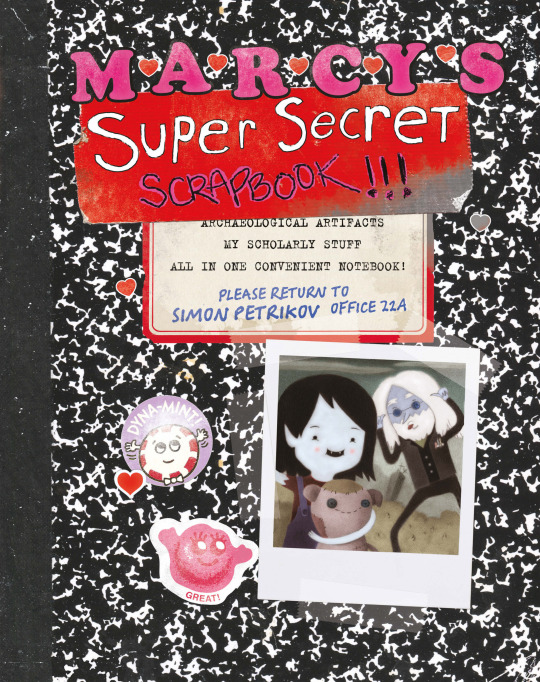
Okay, so shout-outs to the anon (or maybe multiple anons) who told me to read Marcy’s Super Secret Scrapbook. I freaking loved it! I’m also glad I read it at this point and didn’t wait until after the whole series. It makes such a good companion piece to the Stakes mini-series.
The Enchiridion was...not quite as exciting, but still had a couple of neat tidbits. Simon’s notes are nice. The Wizard section was fairly interesting. Some nice lore and world-building. I kind of wish the Bestiarum Vocabulum section had a bit more to it. And I must admit I was slightly disappointed that the Enchiridion did not, in fact, explicitly state that you should not strike a foe who’s raised their bottom to the sky. The Scrapbook is so in line with the mini-series; it would’ve been nice if the Enchiridion could’ve incorporated that as a little nod. They cover their bases with the explanation that there are multiple editions and even strongly imply that Finn’s was an earlier edition, but it still would’ve been neat.
A far more glaring omission is the Empress. Hierophant and the Vampire King are both mentioned in the Scrapbook, but the Empress isn’t. She knew both Marceline and Simon. Marcy had her power of invisibility so she must have staked and absorbed her at some point. My best guess is that the Empress enthralled Simon at a point when Simon was still writing the notes and it was on one of the pages he pulled out before he left. Or maybe Marceline just didn’t write it down for some reason. Or the writers just dropped the ball and didn’t catch this little continuity hiccup.
Those are my general thoughts. I’m also doing the whole images of my some of my favorite stuff interspersed with my reactions and commentary thing, but since this is gonna be an extra-extra long post, I’ve decided to actually use a read more cut this time.
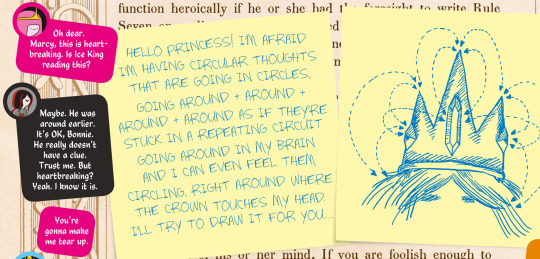
Marcy and Bonnie talking about Simon in the margins. Give me some of that in the show.

This is the kind of lore development I like to learn about.

Does that mean the writers have thoughts about more Shoko development in future episodes and didn’t want to burn up their ideas in the side material?
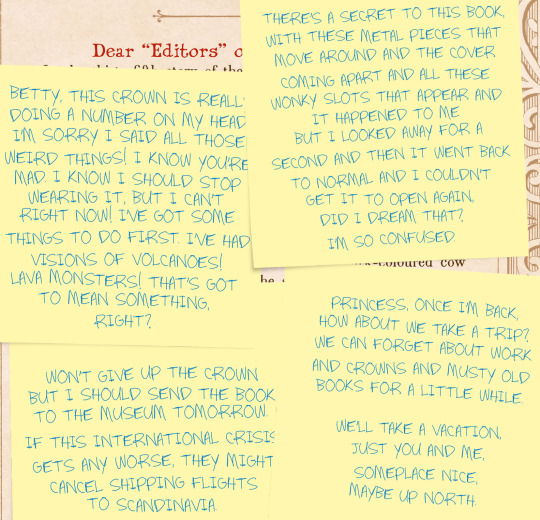
International crisis. I mean that was more-or-less implied by the irradiated world, but I like learning more info. Also, he’s already talking about going North. It fits that they paired this with the Scrapbook. The notes follow through for tracking Simon’s progression into madness.
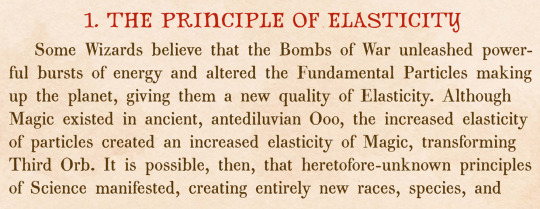
Sure. Again, kind of vaguely implied already by the series, but nice to know.
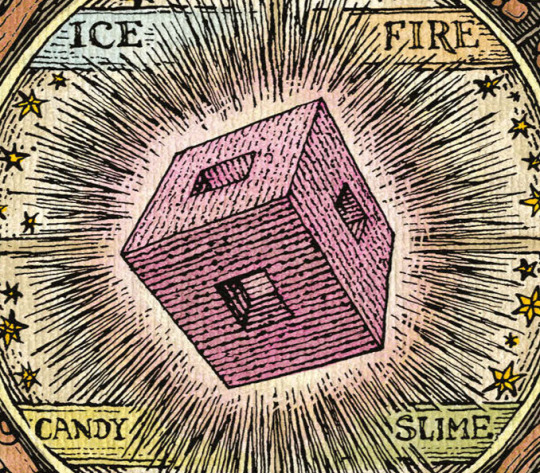
Now all I can think of is “long ago the four nations lived together in harmony...” Thanks to whoever sent that ask.

I may wanna get these on buttons or patches for my coat to go with the Avatar symbols.

Not sure what to make of this. I feel like it’s some kind of lore for the show. Maybe something to do with Prismo?
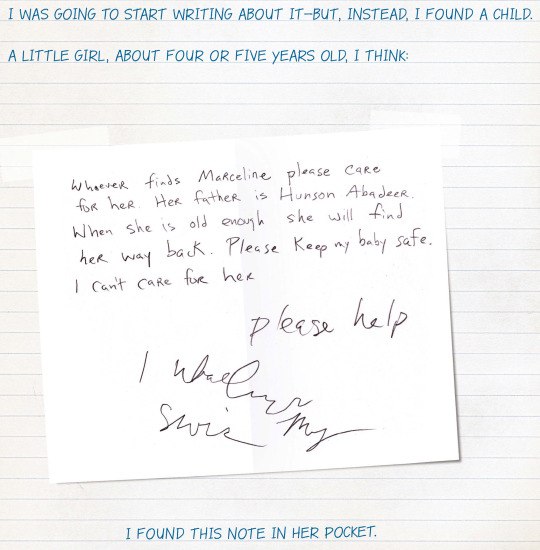
Hoo boy. Here we go. The feels train is pulling into the station.

This relationship is just so moving. I’m a sucker for found families.
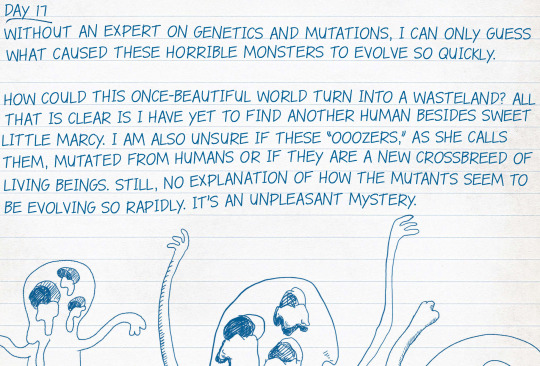
More world building. Bring it on.

Even if Simon’s story hadn’t been tied to Marcy’s, it would still be one of the most interesting parts of the show. And that first paragraph feels like something that should’ve come up in the show by now. They really haven’t explained quite enough about Betty for my liking. Learning that she has a history of studying these kinds of things helps clarify why she’s so willing and able to take the approach she’s been taking.

After Bonnie and Neddy, I can only assume that this is the Mother Gum in its early days.
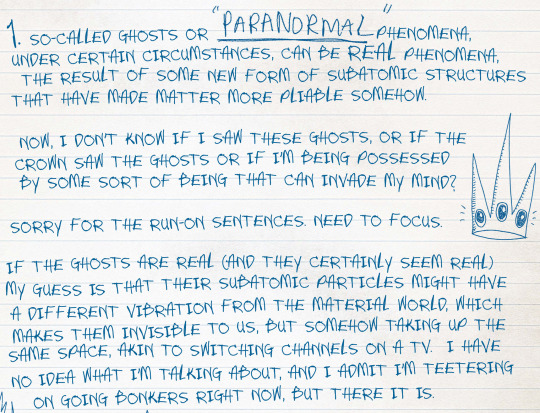
Mmhm. Sure. Matter’s more pliable. I can dig it.
The vibrational talk reminded of that bag of miniature people that Magic Man planted on Finn that one time. And he had to shake them to speak to them on their vibrational plane or whatever. I wonder if that’s ever gonna come back with some kind of added significance.
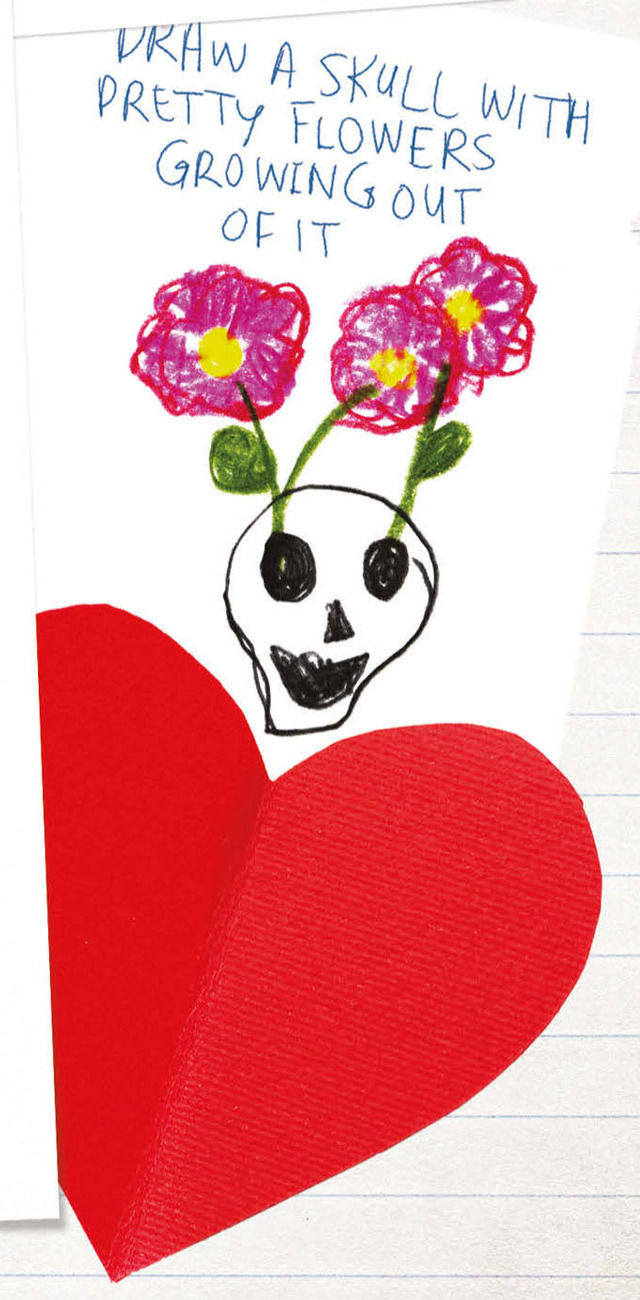
Reminds me of when Life kissed Death.

Wonder if that was a deliberate nod or not.


This. Relationship.
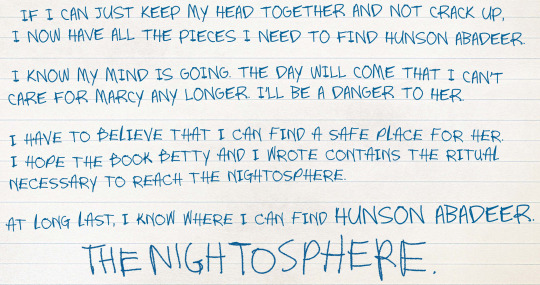
Again, I’m glad I read this now. The thing I couldn’t quite puzzle out after Stakes was where Hunson Abadeer fit into things. This is filling in some of the blanks quite nicely.
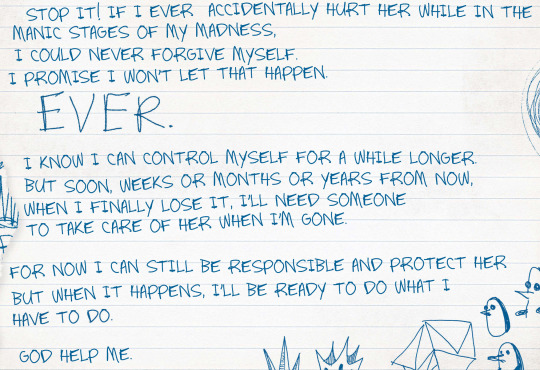
You know, after seven seasons of Grob Gob Glob Grod, it was a little jarring to actually see the word “God” here. I’ve got a pretty good recall for character voices, so I could basically hear Tom Kenny saying it as I read it. Of course it makes sense that Simon would have God in his vernacular. Somehow, after the phrase being conspicuously absent for so long, it seems to punch up the impact.
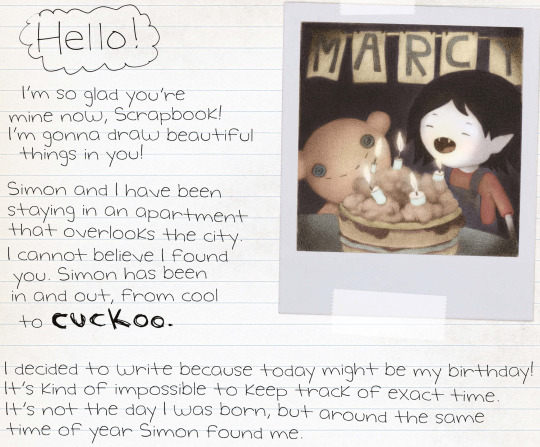
She celebrates her birthday around the time Simon found her! This precious child!

Oh, I can hear it in her voice. My heart!


“I don’t think I’ll ever see him again. Ever.”
There’s no mention of her encountering him again in the scrapbook. I’ve already mentioned the Empress, conspicuous in her absence. And she alludes to other meet-ups in the episode “I Remember You.” I can only assume those meetings take place after the last page of the scrapbook.
I’d love to know more though. I’d love to see her first discovering that Simon’s still alive, but completely insane now. And I’d love to know how we get from this:
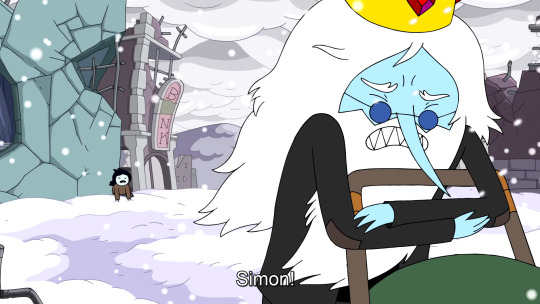
To this:
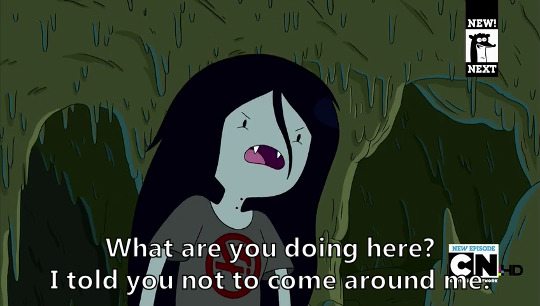
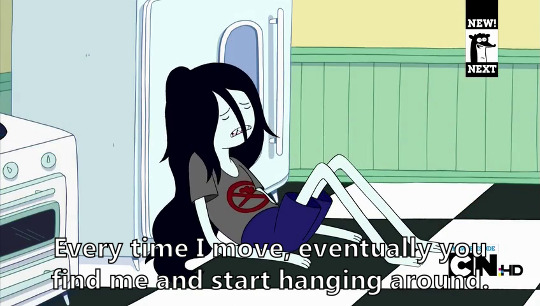
There’s so much of the story that’s still untold.
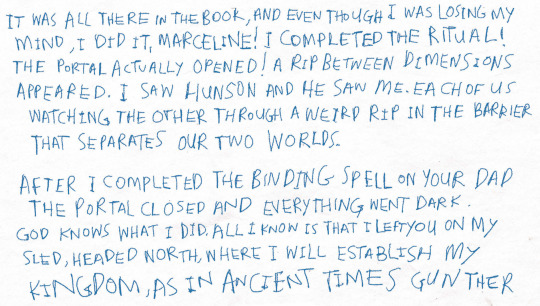
That moment in Bad Little Boy where Ice King was like “Gob, I’m sorry I doubted your power” kind of takes on a new dimension when you think about how Simon’s from a different time.

“I hope these bring you comfort now that I’m gone, and remind you that you are loved.”
Just fuck me up, why don’t you?

“I want to feel her holding me in her arms and hugging me again like that.”
JUST FUCK ME UP, WHY DON’T YOU?
Again, this ties in so well with the Stakes mini-series. This was exactly the right time to read this for maximum emotional resonance.
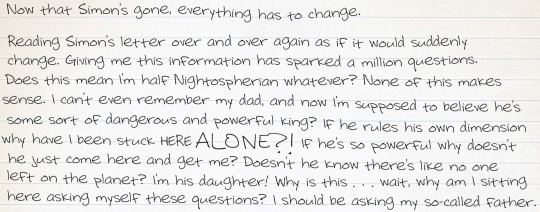
Oh, Marcy, you poor, sweet, confused, little angel.

Well, I wanted to know where Hunson fit into things. Should’ve known it would be bad times.

Yeah, I can kind of relate to not having a great father but still wondering how much of who you are is from him.
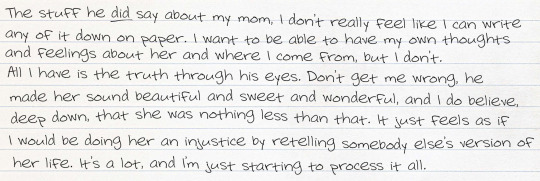
Deep. Especially at her age. Simon did say she was smart. And of course she had to grow up fast, given that world was a wreck.

“He didn’t deserve what happened to him.”
I concur.

I can also kind of relate to giving your not-so-great dad another chance and getting burned again. I suppose it’s not really a shock that I gravitate toward characters who have poor relationships with their fathers.
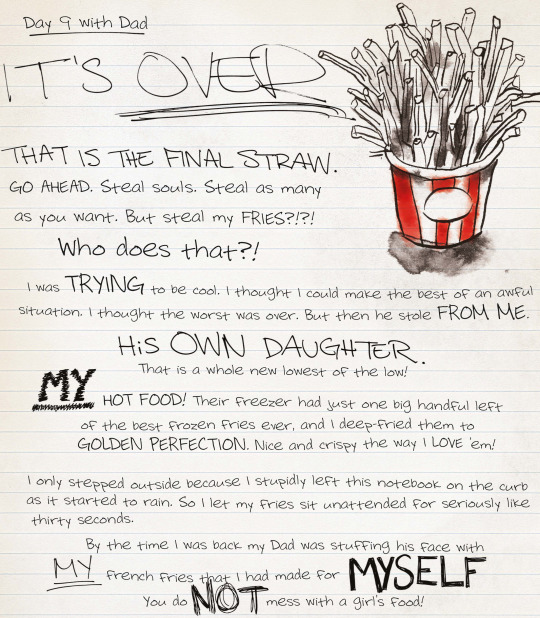
I never really gave any thought to how difficult it would’ve been to even find fries at that time. And the fact that it was the first time he stole something specifically from her also gives it a little more weight. Like I’ve said before, it’s hard to tell when something’s just a throwaway gag and when something’s gonna come back later with added perspective and significance. I have to wonder how much they thought about in advance and how much is just them looking back and saying “we can expand on that.”

There must be at least some of it that they knew they wanted to develop even from the very early stages.
It’s interesting to figure out where Hunson comes into the picture, but I still don’t fully understand all of it. Primarily: How could a human woman see enough merit in Hunson Abadeer that she would want to sleep with him? What stopped him from immediately sucking out her soul? Why was he even on Earth shortly before or during the Great Mushroom War? There’s still a lot of room to grow on here.

Oh, honey, you’re the most interesting person in this universe.

“I still hope for a living friend.”
I was kind of hoping I might get the story of how she met Bonnibel, but I guess they’re saving that for the show. Must be after the events in the scrapbook.
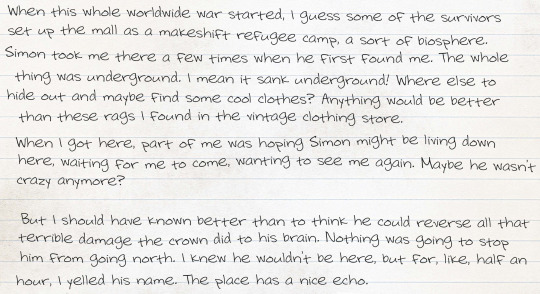
Gimme all the lore. And Marcy wandering through an abandoned sunken mall full of skeletons shouting for Simon is an absolutely heartbreaking thought.

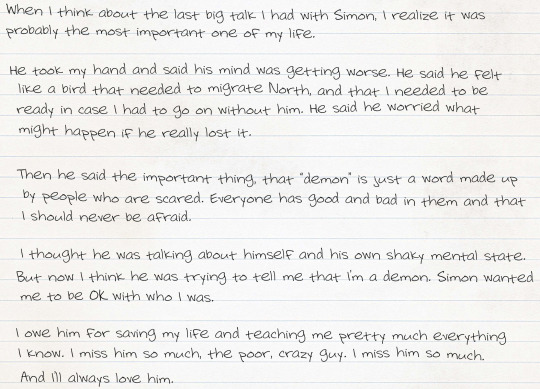
This angel child deserves nothing but happiness.

THIS. RELATIONSHIP.

She found a puppy! Ahhh! They’re so precious!

Yas, Queen!
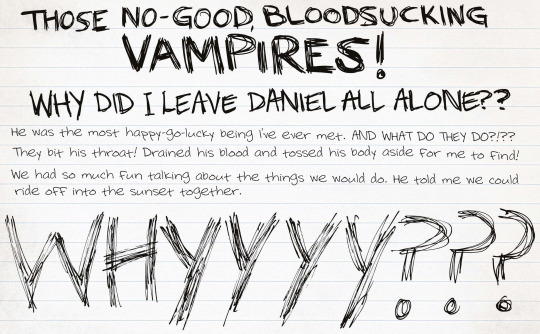
This poor girl can just never catch a break.

This backstory is fantastic.
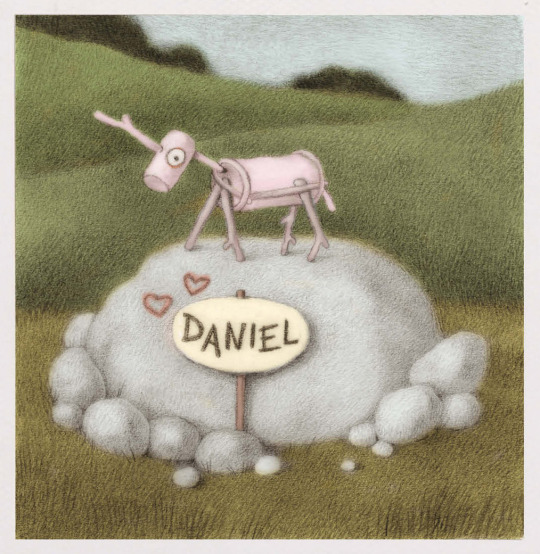
RIP, my dude.
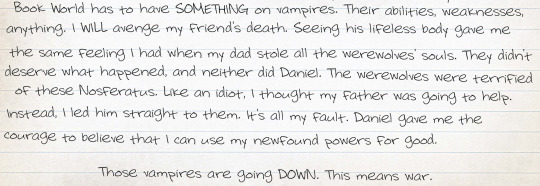
Rise, Marcy the Vampire Slayer.

Let’s go!
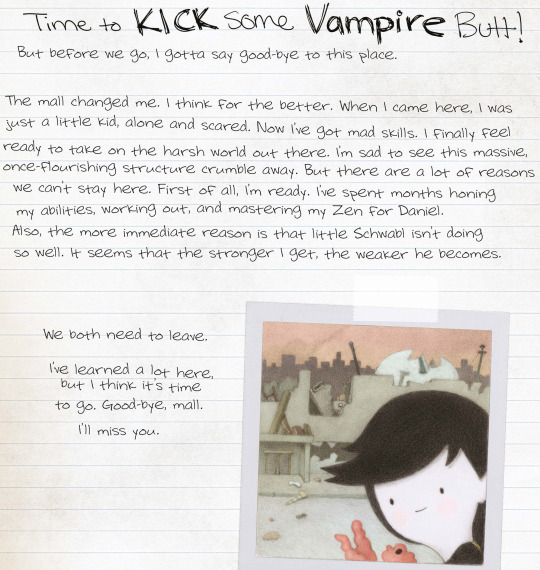
Oh no, what’s wrong with Schwabl?

Marcy defending the last of the life on Earth against the scourge of the vampires. I’d seriously watch a whole series of this.
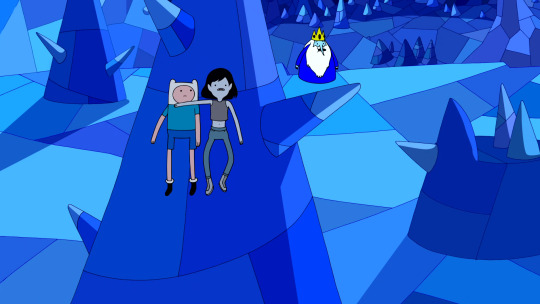
“Staking vampires, protecting the last remaining humans. It felt like I was protecting you. It was the only thing that brought me happiness during those years.”

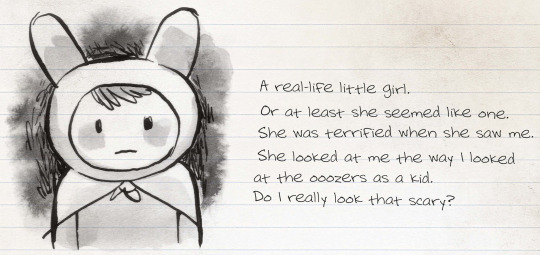

Fascinating.
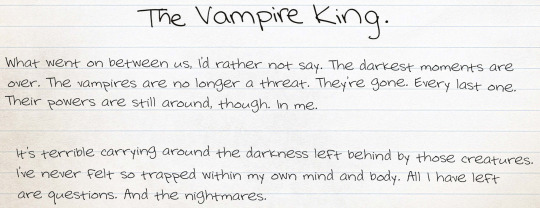
It’s rough watching a character who’s so good go through so much pain.

No, not the puppy!
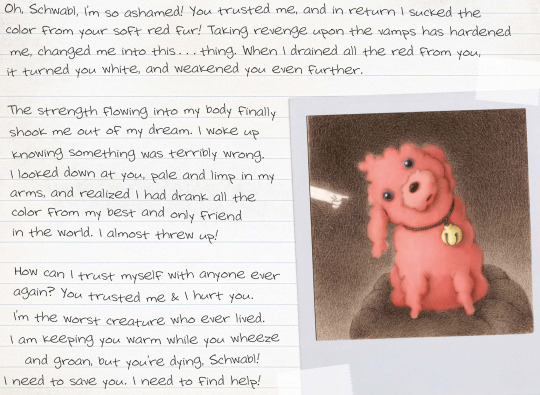
Save the puppy!
Also, that time she almost went feral on Jake was probably really terrible for her because it would have stirred up these memories.

Another good reason to pair the Enchiridion - and particularly Simon’s notes - with this. Who would’ve thought that Marcy owned it for a time?
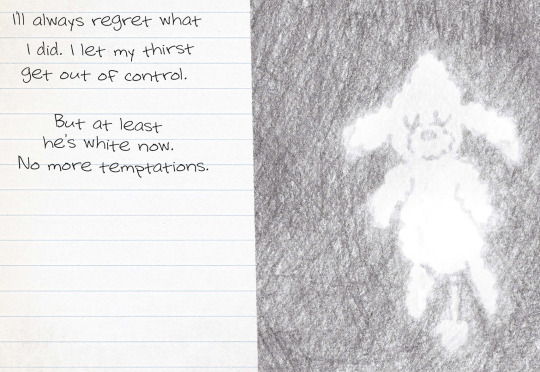
Thank goodness something turned out okay in all of this.
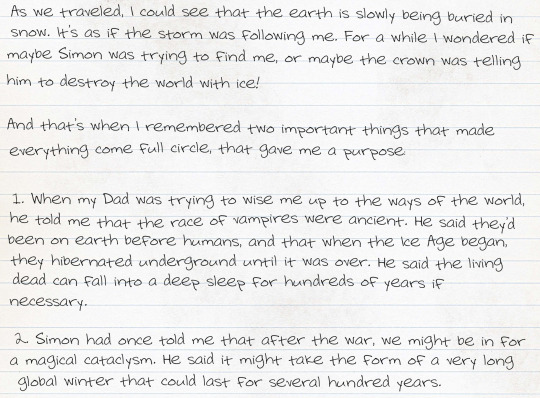
Wild. So is this Simon and the Crown, or some other force causing it? Does it affect the whole planet, or just the continent Marcy’s on? What about all the humans who were leaving on the boat? Can they survive an ice age? Is it a full “400 really boring years” like in Finn’s wish world? Longer? Shorter? This side material raises at least as many questions as it answers.
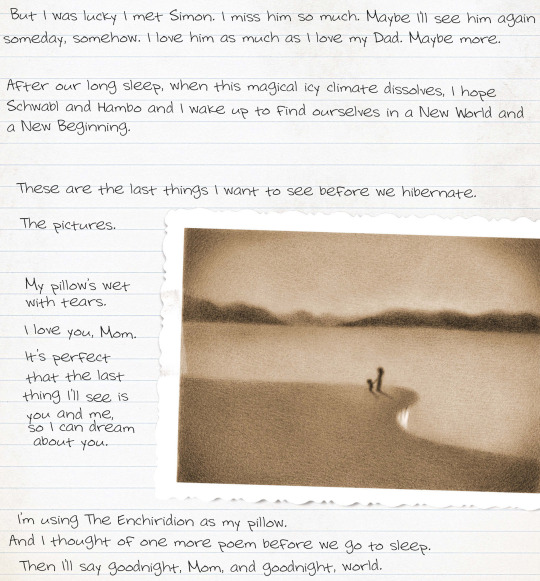
So Simon found the Enchiridion and took notes on it for a while before finally sending it to a museum in Scandinavia just was the international crisis that would become known as the Great Mushroom War was ramping up. Then some wizards found it. Then Marcy found the wizards and took it from them. Now the Enchiridion is with Marcy in hibernation. Then somehow it ends up with a minotaur later and Bubblegum is the one who tells Finn where to get it. There’s another chapter in between there and I feel like it involves both Marceline and Bubblegum. Marcy’s life after the ice age could probably fill another book or two.
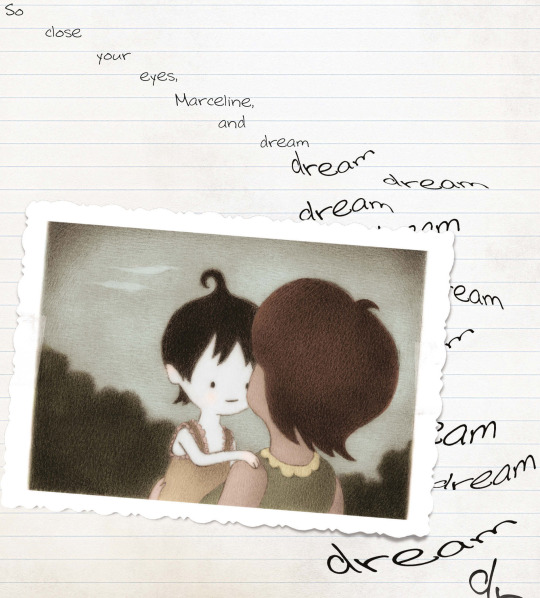
Precious angel child.

Oh snap, it’s actually written by the people who play Marceline and Hunson.
That was a trip and a half to read. I love the backstory and world building so much. Even in the early episodes I suspected that there must be some kind of substance to this universe for the show to go on for as long as it did. Based on the early stuff though I had lowered my expectations and never imagined that this universe would gain so much depth, complexity, and (above all else) tragedy.
Marceline seems so carefree, but she’s been through SO. MUCH. Most of it while she was still a small child. The people of Ooo are absolutely blessed to have someone like Marceline in their world. And they’re also quite fortunate that her trauma didn’t push her to the full-on dark side. Even after a thousand years of so much confusion and loss, however chaotic she may get, she still has such a good heart.
And wow does reading this ever reinforce my desire for them to figure out a way to save Simon. “He didn’t deserve what happened to him” is so right. Although if it hadn’t happened to him, he never would’ve been able to protect Marcy. He probably would’ve died in the Great Mushroom War like almost everyone else, and Betty would’ve died too. Maybe you could chalk it up to Marcy’s mother’s last prayer being answered or the universe working in mysterious ways or possibly even retrocausality that Simon was able to survive and care for Marcy. Even so, I’m about four seasons beyond ready for the heroes and protagonists to help this poor old man get back the sanity that was stolen from him.
I feel like Finn’s the key somehow. The Crown seems to be possessed by a ghost or spirit. Gunther’s unfinished ghostly business was Evergreen and Evergreen’s unfinished ghostly business was the Catalyst Comet and Finn’s the reincarnation of the Catalyst Comet and all of that’s tied up with the Ice Crown. It seems like there’s some kind of puzzle taking shape there. Betty’s studying psychometric energy, magic, and Glob’s freaking helmet...Glob who was last seen facing off against, once again, the Catalyst Comet.
And just from the Doylist perspective, the writers have been spinning out this tragic tale of Simon Petrikov for a long time and it would be emotionally unsatisfying if they never save this poor man’s mind. I’m worried they might make me wait until the end of the show to fully resolve it though. I was worried for a while that getting his mind back would kill him, but after the events of the episode “Betty” I don’t expect them to take that route.
Simon and Marcy are such tragic characters and I feel for them both. I love learning more about them, even when most of what I learn breaks my heart. The two of them embody so much of what gives this universe its heart and brings it to life.
9 notes
·
View notes
Text
OUAT 1X121 - An Apple Red as Blood
This title giving anyone an “Into the Woods” vibe?
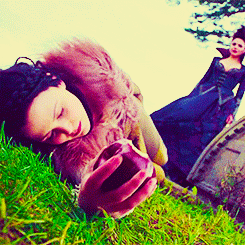
No? Just me?
Okay. Well, we’re twenty-one episodes in. You you what to do if you want to read my thoughts.
General Thoughts
Past
There’s not a ton to say about the storyline here. It’s incredibly simple, but also incredibly fun with a LOTR-style fight and a super dramatic confrontation between Snow and Regina. However, I do want to point out the great show of the community Snow has built around herself over the course of the season as demonstrated throughout the flashback. Until the climax of the episode, Snow is never without her supportive group of friends. Through the way they talk to each other and fight, we see their cooperation and just how much they care for each other. We get to see Snow as a ruler, but now one who has fully embraced the kindness and willingness to accept love within herself and from others.
Present
So a big part of this and the last episode (Enforced by Henry, Mary Margaret, and August’s speeches) was that Emma needed to help not just Henry, but everyone in Storybrooke get their happy endings. However, this isn’t something that enforced by the narrative. Emma’s actions through this episode are done with only Henry’s well being in mind and while she’s making the wrong decision as to whether to stay or leave, that’s only a matter revolving around Henry (enforced by the ending). I wouldn’t have minded a narrative solely based off of Henry, but for this to be a major point brought up by two of Emma’s closest companions and for their not to be any effects of Emma’s looming departure (Other than the worsening of August’s condition and an admittedly AMAZING scene between Emma and Mary Margaret) serves as a disservice to the narrative. They try to bring it back at the end of the episode after abandoning it for a while by having Emma bring up that all of her actions have hurt others, but I can’t help but feel that it rings a little hollow.
I wish that as a counterpoint to the past, Emma’s community would’ve played a bigger part in this episode as it pertains to her. It was set up well enough through the fantastic dream sequence, and thankfully, we get a bit more of it in Seasons 2 and 3, but that crowd rallies more around Snow and Chraming and this was the only chance to have a group rally around Emma. Again, if they just wanted to focus on the story in this episode revolving around Henry, that’s fine, but there was this buildup between this and the last episode that this conflict was more than just about Henry and Emma would need to look at it that way and it just didn’t deliver.
On the more positive side (And believe me, I genuinely liked the present sequence), I loved Regina in this episode. I feel like this was one of the best portrayals of Regina as a sympathetic villain thus far. Seeing her dream sequence gave a both funny and sad way that her mind works. We get to see Snow, Charming, and Emma overact, giving us insight into what she thinks of them, and at the same time, the uncomfortable dinner with Henry and his joy at the thought of torturing her after the curse. It’s so sad that this is what she believes her relationship with Henry has devolved to, and it makes me happier to see that the two of them grow beyond this with respect to Henry. Henry’s feeling on Regina are never positive in this first season, and I’ll talk about this in my review of “Broken,” but he’d never want to really hurt her, and that says so much about his character.
Insights
-I think that’s corn beef Regina and Henry are eating, and it looks so good! ...I needed something to distract from the utter creepiness that was that dinner. Also, Regina, don’t eat with your mouth full!
-I am dying from this opening scene! It’s so beautifully, majestically over-the-top and I live for it! I know it’s supposed to be serious, and when taking it serious, it’s an equally beautifully creepy scene that gives such a unique thing of having the villain dream, but oh my Merlin it is so much fun to crack up at the hamminess of it all!
-I’m pretty bummed to see that the nuance surrounding King George was just abandoned here, exchanged for making him a simple villain.
-”Perhaps it’s your fertilizer.” Gold, you beautiful bastard. On a side note, this is my favorite suit of Rumple’s this season. Red and black are just his colors.
-Very interesting insight into Gold. Gold could’ve killed Emma at any time after she arrived in order for the curse to be broken, but he never did. That could be contributed to so much. (1) He just didn’t want to kill her, starting off in this world on the right foot for Bae. (2) He didn’t want the curse broken before he could get his magic back. (3) He was unsure of the repercussions of the schematics of the curse breaking through Emma’s death and wanted to avoid that possibility. For me, it’s a combination of all of them, but probably the second one the most.
-I love seeing Snow large and in charge of her people. She has the warmth and kindness so closely knit with this character with the weight to her words the likes of which Dumbledore would shrink at (I guess I have HP on the mind).
-I said this before and I’ll say it again. *ahem* Jefferson? Jeffie? YOU DON’T HAVE TWO LIVES! REGINA KEPT YOUR MEMORIES INTACT WHEN YOU CAME HERE! Fuck! It would be one thing if we heard about another life that he lead, but we didn’t. He was just a crazy guy who lived in a mansion! I have a couple problems with Jefferson’s presence in the finale, and this one just irks me.
-How much control does Regina have over the memories of others? Thankfully, it wasn’t something that needed to be dwelled on since there was no one she wanted to wake up during the curse’s run, but it’s pretty interesting to think about all the same.
-This battle is just really cool! We get to see the strength of Snow’s army and just how powerful and supportive they all are of each other! And the music is so cool, particularly the strings! Also, Keegan’s war cries make me laugh so hard! I think people underestimate how great things are when they’re hammy, and a bunch of multi-colored fireflies giving war cries and throwing dust makes for a scene that is hammier than a bacon convention.
-August and Henry had the best conversation. Damn, I’m really going to miss these two together!
-Hold the front door! If Snow didn’t know that Regina blamed her for Daniel’s death and the true circumstances behind it, then why did Snow say that she knew why Regina hated her in the “Snow Falls” flashback?
-”Dreams formed of your own regrets.” I wish we had seen that. What would Snow’s regrets for that time in her life have looked like? That could’ve made for a really avant-garde “Five People You Meet in Heaven” esque flashback where Snow thinks about a bunch of the people from her life (Regina, Charming, her parents, the dwarfs) during the time that she was under the sleeping curse.
-Emma’s red jacket looks the best above a black shirt.
-There’s a great contrast to how both Emma and Regina react to circumstances using the best of their knowledge, and both come from fascinating places. Archie’s right in how Regina’s moves are more defensive, but they’re defensively offensive. Her moves are made to protect her way of life, but they intend to and do succeed in scarring worse than anything Emma’s done. And Emma’s moves have more directly flown in the face of Regina’s wishes and require more outright initiative on her part, but her moves take into consideration Henry and everyone else’s feelings as she’s performing them.
Arcs
Emma’s journey of belief - It’s interesting that in this episode, we get kind of a crackdown. Emma has been building up an illusion - sort of. She’s been considering herself the hero, and that’s right, but with the knowledge at her disposal, she’s also seeing the harm she’s done to Henry and Regina. This causes any faith that she has built up to be if not gone, then repressed. It’s an interesting turn that doesn’t invalidate her progress, but lets her reach her lowest moment in a clever way.
Favorite Dynamic
Emma and Mary Margaret. Earlier, I briefly touched upon their amazing scene, but let’s take a closer look because all of the things I love about their dynamic in this episode come from it. I feel like this was expertly given as the point of culmination for these two given the straight up business of the next episode. Here, it got the time, attention, and characterization needed to show this bond. We see how much Mary Margaret has transformed. As Albus Dumbledore once said, “it takes a great deal of bravery to stand up to your enemies, but just as much to stand up to your friends.” I think this line perfectly speaks to Mary Margaret and her journey here. Mary Margaret has had to learn this lesson the hard way. She had to get mad and actually show that anger towards both David and - in this scene - Emma. And considering where we saw her start off, that’s hard to do. And yet she did. And Emma is genuinely affected by this encounter, as she goes to Archie afterwards to see fairly where both she and Henry are at from an unbiased POV. Her approach has become calmer as a direct result of being friends with Mary Margaret.
Writer
It’s our final episode of the season for Jane and David! Their writing was especially solid and dramatic here. While I take issue with some of the story and plot elements they used, it doesn’t take away a lot from the really nice stories they told here.
Rating
8/10. As I said before, I had some trouble with the initial buildup for this episode. However, when the episode finally decided to stick with the story being about the feud over Henry (Which wasn’t too late in the game, thankfully), the story became incredibly tight. Additionally, all throughout, we saw great insights into our mains and a frankly just fun battle in the Enchanted Forest that culminated in some beautiful scenes.
Flip My Ship
Swan Queen - “I didn’t come for dinner. I came for...you.” In another universe, this is a sex scene waiting to happen! “We all did.” And theeeere’s the orgy! Also, the few seconds of Emma approaching Regina’s door later on in the episode mixed with Regina baking looks like the two are gearing up for a super cute date, ESPECIALLY when you mix in the first few lines they speak to each other!
Snowing - The crescendo of the Snowing theme as Snow eats the apple and both she and Charming feel it is one of the best moments in the entire series for them. There’s also the beautiful mirror scene. It just speaks to how well these two are developed that these little moments together in between and within bouts of separation can mean so much for both the audience and them.
()()()()()()()()()()()()()()()
Woohoo!!! We’re almost at the end of Season 1!!! Will it be just as amazing as I remember? I damn well hope so! I hope you come back and give it a read!
Thanks again to the fine folks at @watchingfairytales for putting the project together and to all of you who stopped by and gave this a read. I know this wasn’t my longest one, but this week was a bit difficult for one reason or another, so thank you for understanding.
Writer Tally for Season 1:
A&E (50/70)
Liz Tigelaar (17/20)*
David Goodman (41/50)*
Jane Espenson (54/60)*
Andrew Chambliss and Ian Goldberg (38/40)*
Daniel Thomsen (8/10)*
Vladimir Kvetko (9/10)*
(* = Their work for the season is complete)
Tags: ouat, once upon a time, watching fairytales, ouat episode code, ouat rewatch, jenna watches ouat, ships mentioned
Operation Rewatch Archives
#ouat#once upon a time#watching fairytales#ouat 1x21#ouat rewatch#jenna watches ouat#basically every character in this episode is discussed#ships mentioned#swan queen#snowing
8 notes
·
View notes
Text
Depression Series: A Working Title (part 1)
A fair warning is probably needed, I suppose: This post is not and has nothing to do with feer and bood (or beer and food, for that matter). This is a multi-part series I decided to write about living with my depression. Super uplifting stuff (but seriously give it a shot, you might learn something). I guess this first part is more of a “What is it and why?” part.
14 years ago, I was first diagnosed with depression. As odd as it sounds, my depression is one of my oldest acquaintances, always around, hovering over me like a cloud, the persistent voice of negativity and self-criticism that I hear all the time, detracting from... the good things in my life... a constant part of my life for as long as I can remember. And not too long after that, and only recently have I discovered this, my anxiety came with it.
I try hard not to show it or let anyone see it or know that it's there. For a long time, I thought that it was normal. And then, that changed to me thinking that I deserved it, that I was meant to carry it because I wasn’t good enough to be normal, and that if I ever should admit to it, it would shameful (and don’t even get me started on how pressure men in our society to not show emotions, to not be sad, to not be depressed, on how I was supposed to play football and not do theater or how I was called f*g for crying and showing emotion at Timberwolves camp. I still hit the most free throws that summer). if I just pushed through and lived my life it would go away, right? So that's what I did. I didn't talk about it. I put on a smile, kept my chin up and just carried on, like a good British soldier. Tried hard in school, got a job that turned into a career, got a second job for my hobby, went out with friends, married my best friend, and just tried to navigate each day the best I could.
But it's always been there, my depression, my anxiety, my passengers, with me along the way, ebbing and flowing and crashing inside me. I see them each birthday to remind me I’m a year older and to critique me for what I haven’t done, they’re there every Christmas to make me sad for the state of the world, for the family not there, or for how quick it all goes and how we chase the joy of the holiday season until it fades like sunlight in winter. When a co-worker tells me news I’m hearing for the first time, my depression and anxiety tell me that I should take it personally that no one wanted to tell me, that people are purposefully withholding information from me, that I am bad at my job for being the last to know, that I am probably going to be fired. When my wife asks, cautiously, if I am in a bad mood, I suddenly become enraged even if I was actually perfectly content moments earlier. And then throughout all my days every day, I am reminded of something of my past or play a memory in my head that brings an overwhelming sense of nostalgia over me like a wave, and suddenly I am sad I’m not back there. They seep through, more and more, as the years go on, causing me to lash out, say things I don’t mean, self-sabotage myself in more ways than I even know (I’m still learning about them all). I am self-sabotaging as I write this (I’ve been picking at my beard since I started, my anxiety takes over).
Honestly, I find it so hard to talk about. There are so many thoughts that race through my mind that I probably won’t ever share, I’ll just tuck them away deep within, even if they hurt, especially if they hurt. I struggle to talk about this with my best friends because I feel like by doing so, I’m protecting them. And actually, sometimes they just don’t know how to help or what to say. Why should I care if you think I’m a great person if I hate who I am?
And then I think that I’m probably doing a disservice to someone’s real depression, and so I keep shut, I clam up, I don’t talk about it, I stay in my head and I spiral and my attitude changes and I become irritable and then I start to realize I’m digging this hole and everyone around me isn’t happy to interact with me, like they’re walking on eggshells, and I don’t want that so I start to tear at myself to try and fix it and I’m under so much pressure because I keep looking at how much time I’m wasting being miserable, making you miserable.
Sometimes I am lucky to encounter others like me, with lasting depression as a companion, and for a moment you can be reminded that you’re not alone. And then I look at the numbers, and I can see, I’m not alone:
1 in 5 Americans will be impacted by mental illness during their lifetime.
We lose about as many people to suicide each year as we do to breast cancer.
2/3 of people with depression do not actively seek nor receive proper treatment.
Suicide is the 2nd leading cause of death for ages 15-44 (42,773 deaths by suicide in the US in 2014).
Women experience depression at twice the rate of men.
There are nine different types of depression a person can be diagnosed with.
Depression ranks among the top three workplace issues, following only family crisis and stress.
OK, I could go on and on here. One of the things that sparked all this was this article about what it is like to be high-functioning and have depression. Here are some quotes:
This is the ordeal for millions of Americans who have depression: always "on" because of high-pressure jobs, sleep-deprived and feeling like you just have to continue keeping your chin up. Many don't realize that depression can lurk in the background, allowing you to go through the motions but still depriving you of the ability to live life to its fullest.
On the surface, high-functioning depression may seem like it's easier to deal with, but it can persist for years, leading to more functional impairment over time than acute episodes of major depression... Research has shown that the low self-esteem, lack of energy, irritability, and decrease in productivity that accompanies persistent depression is associated with significant long-term social dysfunction, psychiatric hospitalizations, and high rates of suicide attempts. And, ironically, persistent depression also puts people at a higher riskfor major depressive episodes with more severe symptoms.But the stigma around mental illness—or any signs of weakness—prevents people from revealing their stress to friends and colleagues.
It hit home to me for so many reasons. I struggle that I am too goddamn self-critical to let me slip up and not be high-functioning. And I hate myself for it. The article resonated with me, as if someone else has lived with similar acquaintances, too.
Why write this, you ask? Who cares might be a more accurate question (aren’t I uplifting?). Not that people don’t care, just maybe not enough to go read a long-ass blog about this kind of thing. Maybe it’s depressing (humor!). I ask myself these same questions and even struggled to share any of this at all. For the last few weeks, I’ve had this idea to write a series on my blog (it’s about food and beer, but also now I suppose some random thoughts and happenings in my life) about my depression to maybe have the opportunity to reach out to others that might feel something similar. If you feel like me at all and you’re not talking about it, then hopefully this reaches you. I’m starting to open up to someone who maybe knows what they are doing and progress is slow but hey, I got the courage to write all this, didn’t I? I struggle with how we talk about depression. I struggle that there often isn’t a safe place for people to talk about their depression and their thoughts without being labeled or without being seen as unsafe.
"If you admit that you're depressed or you have a mental health issue, people on the outside, who are not dealing with that, automatically label you as being crazy," Judge says.
I struggle with how depression is so commonly misunderstood, even by some of my friends and family. I struggle with how it’s been portrayed t is yet another one of those topics we just don’t like talking about enough. Wouldn’t it be interesting to see some thoughts out in the open?
I think that maybe, just maybe, if writing is cathartic, and to me and many people it is, that by writing some of this down it might help me better understand not only my depression, but also myself and who I am. And in the end, isn’t that what we’re really trying to do?
I don’t know what I am holding onto that makes me this way, but I’m holding onto something and I’m getting tired. I’m trying.
1 note
·
View note
Note
Is it me, or has Ren been purposely distant/annoyed with Nora lately. I've caught on multiple occasions (Mostly CH 1,3,4 and now 5) where Nora will do something and Ren will ignore it, shake his head at her, or just bluntly call her out. It seems to me that RT might be setting up a possible conflict with Renora where Ren might actually snap at Nora for not taking something seriously and be all "Why cant you take anything serious?!" I'm very curious about this--What do you think?
Hmm…well to be fair anon-chan; while seeing Ren flat out turn down Nora’s compliment about his new outfit, much to her disappointment, was annoying to see as a Renora-shipper, outside of that, Ren’s behaviour with Nora doesn’t seem that much different. At least to me.
We’ve seen Ren make dry remarks in response to Nora’s animated outbursts in the past. But for the most part Ren has always been quite patient with Nora; allowing her to be as loud and outspoken as she wants to be and a part of me would like to think that Ren’s unyielding patience with Nora stems from their time surviving on their own together particularly the night Ren protected Nora from the Nevermore.
Nora used to be so scared and soft spoken when we first saw her as a little girl back during the Kunoyuri episode. It’s almost hard to believe she evolved into the exuberant young woman we know her to be. And I think part of that is due inpart to Ren always encouraging her to be that way with him.
The only times Ren’s sudden change in behaviour toward Nora stood out to me the most was in V7CH1 where Ren took off in combat without Nora, much to her clear annoyance and of course their moment in CH3.
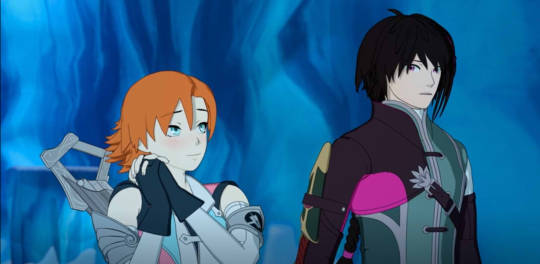
Since Ren was seen being trained personally by Elm (and getting his ass clobbered) in V7CH5, I’m curious to know if this will become a routine thing for him.
Constantly training, particularly with Elm as part of his regiment when he isn’t on mission or doing team training with Nora, Jaune and perhaps Oscar too from time to time.
Though that montage with Ren and Elm was short, it was enough for me to take note of it. Why? Because it ties into my theory for Ren’s strange behaviour for this season. As I once told another anon-ninja, I chucked up Ren’s sudden distance of Nora as his way of giving himself some space so that he can grow stronger as a fighter and huntsmen.
Despite starting off as a seemingly weak-minded, scared little girl, Nora has evolved into a powerhouse. She’s definitely become a stronger person than she was before when she met Ren.
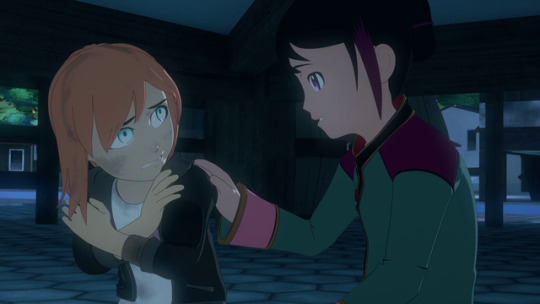
So much so that my idea was that Ren must’ve compared himself to Nora and Jaune and realized that he may be the weakest link within his team. Nora has always been a raging force of nature not to be messed with while Jaune himself has shown immense improvement over the seasons.He’s been especially impressive for this season so far.
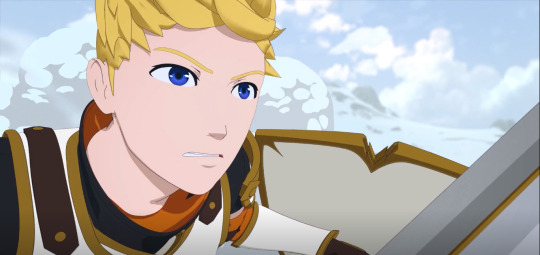
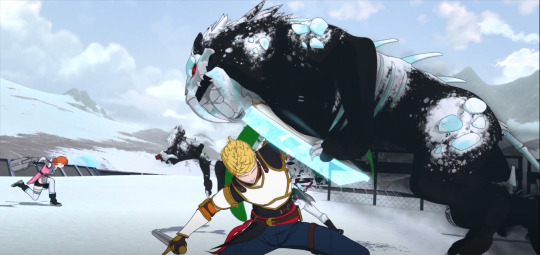
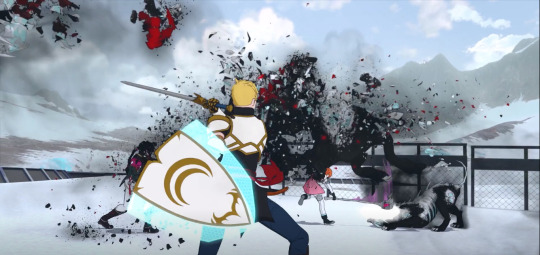
Of the JNR trio, Ren is the one to have grown the least in terms of battle prowess. I remember how quickly he would get winded out in a fight after using his aura. Not to mention that another habit I’ve noticed of Ren in the line of combat is getting himself knocked out too easily during a fight and needing Nora to come save him.
It happened back in V1 when Ren jumped on the Death stalker’s back and got himself flung into a pillar leading to Nora coming in to avenge him alongside Pyrhha and Jaune in their first team fight when JNPR was forged.
It happened back in V2 when Yang knocked him down during the RWBY vs JNPR food fight leading to Nora tagging herself in for him.
It happened in V3 during the JNPR vs BRNZ fight at the Vytal Festival where Ren got taken out by Nolan leading to Nora coming to his defence once again.
It happened back in V4 when he nearly got himself killed by the Nuckelavee if Nora hadn’t intervened.
It happened in V5 when Hazel took him out, leading to Nora to come to his rescue and send the Juggernaut flying straight through the front door.
It even happened again in V6 with Ren getting himself taken away by Cordovin leading Nora to fire after the mechazord to get him back. Not to mention that Ren’s stunt left him unable to help defend and/or protect the rest of his team on the ground.
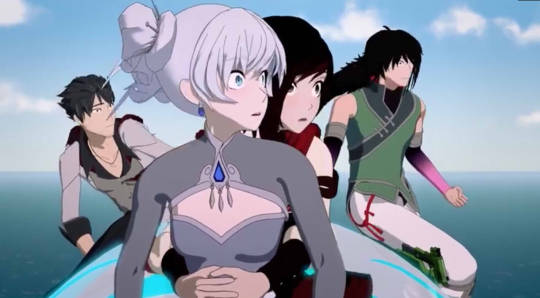
So yeah, as you can tell by my recap, Ren doesn’t do so hot defending himself on the battlefield despite being a competent fight. Nora coming to his aid all the time really has become a glaring habit.
Though the PLOT hasn’t given me much proof to this, I’m going to go out on a limb and say that Ren has probably done some self-assessment within recent times and has now made up his mind while the group is in Atlas to strive to improve himself and get stronger, not just for himself but for his teammates, especially Nora.
Now that I think about it, Neon’s quick jab at Ren during the JN(P)R vs FNKI battle from V7CH5 could be used as further justification for my theory:
“…Wow, your boyfriend’s actually holding his own.”
Neon saying that reaffirms my earlier point about how much Ren fumbles in a fight on his own. And I think that’s the reason for his current mood.
While I do think you might ultimately be correct too in the PLOT setting up a potential fight or tension between our favourite Flower Power pair, for me I feel it has less to do with Nora not being able to take things seriously and more on Ren needing to get stronger. Or hey, maybe both of our theories are correct?
What would make this even more interesting is if Ren’s sudden desire to become stronger ties into what he and everyone recently learnt regarding Salem.
It would be cool if the whole truth about Salem has secretly been weighing on Ren since Argus and it just occurred to him that if any of them were to attempt to go up against the Wicked Witch—even without her immortality, Ren wouldn’t stand a chance against Salem. He wouldn’t even be able to hold her back in his current shape.
Perhaps…this might even force Ren to think back to the RNJR encounter with Tyrian Callows back in V4 and remember how useless he made himself appear up against a formidable opponent like that who proclaimed himself as a servant of Salem.
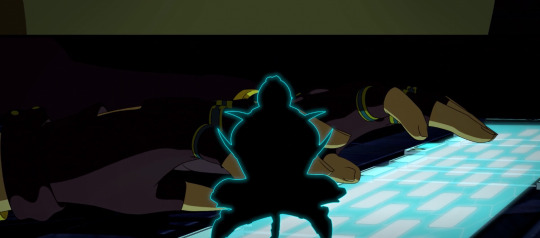
If Ren couldn’t even hold his own against one of Salem’s forces then how can he even call himself a warrior? Shoot, he didn’t even stand a chance against Hazel---another confirmed member of Salem’s forces.
How was he supposed to defend himself against them, let alone his friends? Let alone his girlfriend and closest companion.

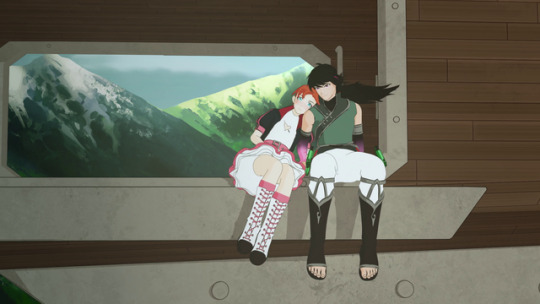
And Ren taking the upcoming fight against Salem moreseriously while Nora isn’t could tie into your hunch regarding his frustration over Nora’s nonchalance? Who knows? It’s another idea for the table of possibilities.
All this being said, a part of me is really hoping for a prospective JNPR 2.0-centric episode for V7.
I want to know what their thoughts on Ruby’s actions in V7CH2 were like. Thus far we have only covered what RWBY thinks with Weiss, Blake and Yang basically playing follow the leader and siding with Ruby. However we don’t know how Jaune, Ren and Nora took the news. We haven’t seen them antagonize Ruby or any of the RWBY girls at all.
One the contrary, JNR behave just as normally as they ever did with RWBY which says they’re fine with the way things are for now.
I find that to be a little odd given how strongly JNR reacted to the truth about Salem back in V6CH8. Perhaps their all hiding their true thoughts for the sake of friendship with Ruby and Team RWBY.
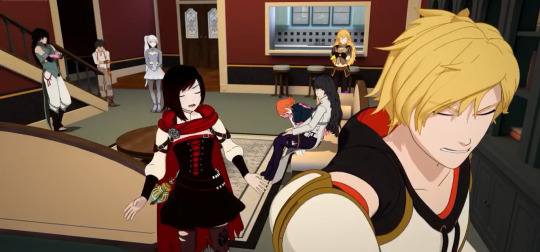
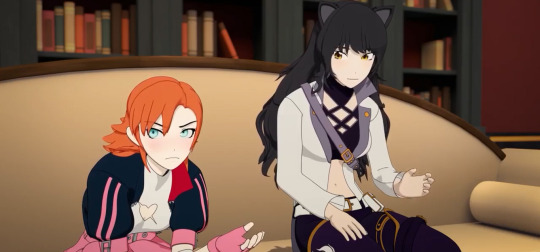
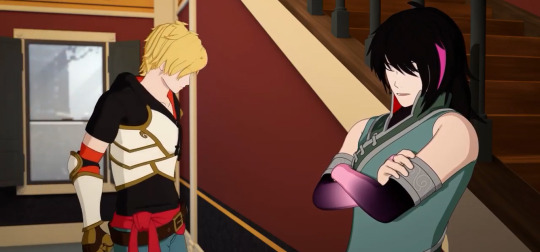
But I wonder how JNR will think about the matter once they hear it from the perspective of someone who doesn’t share in Ruby’s approach—another smaller, more honest soul who the trio have gradually been growing closer to.
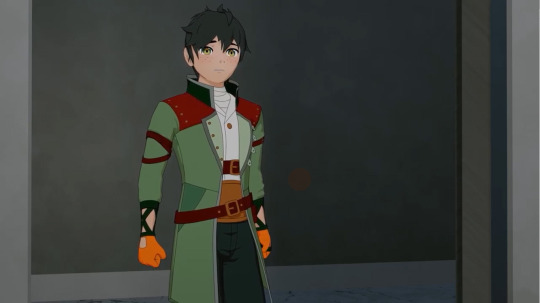
It’d be interesting if we got Oscar approaching JNR for support with him possibly going forward and unveiling the truth to Ironwood. Or at least back him up when confronting Ruby again on the subject.
For me, I mostly want an episode that focuses on Ren and Nora confronting the growing strain in their relationship while potentially leading into a discussion of their past together but from Nora’s point of view this time.
I also wish for an episode like this to show Oscar conflicted on the right approach while confiding in Jaune.
@megashadowdragon shared with me their theory on Jaune telling Oscar about the time he forged his admission papers to get into Beacon Academy. I can see Jaune talking to Oscar in regards to his feelings while using himself as an example in morality.
I have a strong feeling that this WILL surely happen down the line. While we got a teaser of Oscar training with Ironwood in CH5, it is to be noted that Oscar’s training was assigned to help him jog Oz out of his mind.
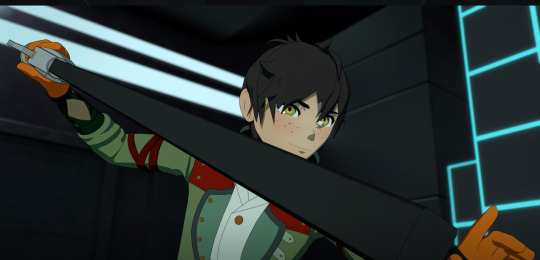
Though things are reasonably friendly between Oscar and Ironwood at the moment, it wouldn’t surprise if down the line James starts to grow wary when he acknowledges that the training regimen hasn’t been successful in bringing Oz back.
While it’s definitely assisted in Oscar’s improvement as a huntsman, as I said, the purpose of the training was to bring back Oz. So if nothing happens in that regard, James will start to get suspicious. He might even start to probe Oscar for more information on his current predicament which could potentially poke holes in Ruby’s swish cheese of an alibi from V7CH2.
Perhaps…even the talk of aura experiments will finally be brought up from this. Imagine if…Ironwood eventually makes the proposition for Oscar to allow Atlas to run tests on his aura as another alternative to forcing Oz to return…unless Oscar gives him a valid reason while he shouldn’t let him undergo experimentation—meaning the truth.
Perhaps…it’ll be a case where Oscar becomes frightened regarding the thought of undergoing experimentation. It’s basically a prospect where Ironwood has unknowingly backed Oscar into a corner based on Ruby’s lie; so to speak. So either the truth comes out or…Oscar gets experimented on for no reason?
And we all know how nice those Atlesian Aura Experiments go for their subjects, right? I know Jaune certainly remembers how great it was for Pyrhha back in V3.
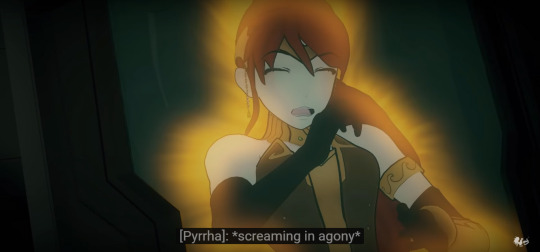
I dunno. I’m only bringing this concept up since I’m curious to know when the PLOT will reintroduce Atlas’ experimental aura technology and research that was revealed back in V3. I still have a feeling that’s going to come back somehow. Either it’ll be part of Oscar’s story for V7 or be savoured for the subplot with our revealed Winter Maiden: Fria.
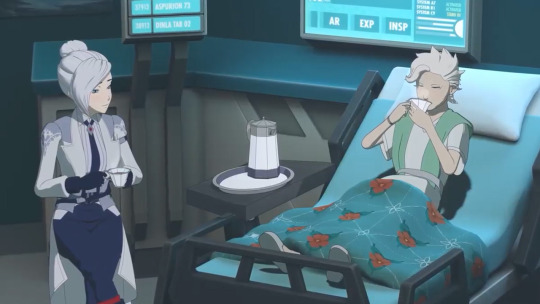
As an alternative, Oscar could just eventually start to feel pressured by keeping the truth from the General, seeing how kind he and his lieutenants have been to him and the others.
Oscar becomes conflicted on what the right thing to do should be. He knows that the Relic of Knowledge is in his possession since Ruby trusted it with him. But at the same time, the little barn prince is also fully aware that one question still remains with the lamp—a question that could be used to unveil the whole truth to Ironwood. The problem is will Ruby want to do that?
Oh! What if…we got a JNPR parallel to RWBY in V7CH2 where Oscar confides in JNR that he wishes to reveal the truth to Ironwood using the Relic of Knowledge but is conflicted about it? One of the JNR members then prompts Oscar with the question on whether he spoke to Ruby regarding his decision.
This now brings me to my Pinehead headcanon where Ruby and Oscar meet alone and get into one big argument over their differing sentiments on trusting Ironwood with the whole truth.
In the end, Oscar begrudgingly returns the Relic to Ruby before parting ways with her implying that he was going to leave the team because of her; or something to that liking.
My rationale for wanting a plot point like this is due to its connection to the Little Prince story where the Prince left his home planet after growing frustrated with his rose.
Since the Prince left because of his rose, I considered something like that happening with Oscar where he decides to either leave the team again or just Ruby in general out of his disappointment and frustration with her recent choice of actions and attitude towards such actions.
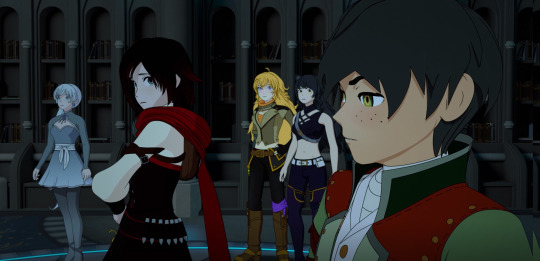
So the little barn prince takes himself out of the equation and abandons his little red rose, returning the Relic to her because he wasn’t prepared to be the one to do to Ruby what she did to Ozpin back in V6.
Nor did he have the heart to watch her become someone else he didn’t recognize. Or something alone those lines.
As I’ve said before, I don’t wish for Oscar to go behind Ruby’s back and tattle on her to the General. I would actually hate it if the PLOT made Oscar do that to Ruby since, I don’t think Oscar would ever do that to her. We all saw how shattered Oz was following the ordeal and I’m certain Oscar felt his pain and sadness in that moment too despite not being in control.
So forgive me if this squiggle meister just can’t fathom Oscar putting Ruby through that. In my mind, he would NEVER. Not to her.
Instead what I’m banking on is a chain reaction of events that result in Oscar convincing Ruby that coming clean about the whole truth to their Atlesian Allies about Salem is the right call so that she could reveal the truth herself.
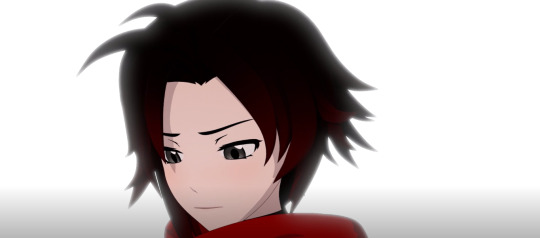
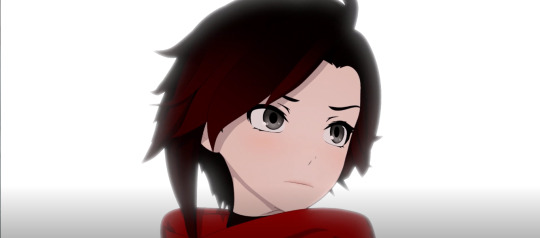
Ruby is the one responsible for planting the group in potential hot water with James after she lied the first time; possibly on Oscar’s behalf which was admittedly bold of her since Oscar didn’t exactly ask her to do that for him.
If the truth is to be revealed, it has to come from Ruby. Heck, perhaps …she and Oscar can both tell the General the truth together since, as I said, the Rosebuds are the drivers of this subplot.
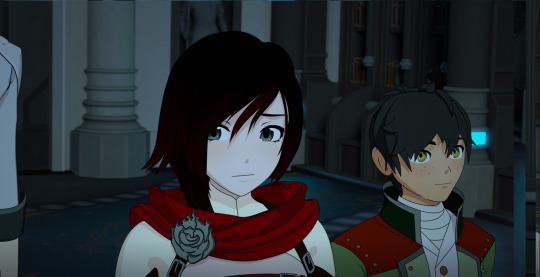
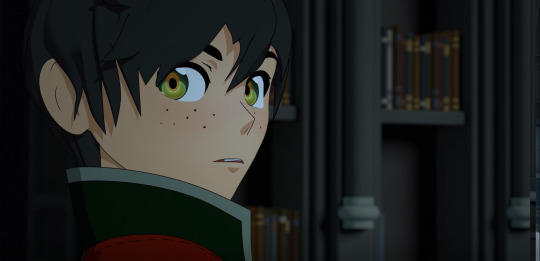
It still really bothers me how the heroes (most of them anyways) really believe that lying to James—the man confirmed to be paranoid about being betrayed by those closest to him—- is a good call especially after the events of V6.
I’m even more stunned at Qrow. Qrow knows James probably a lot better than Ruby does and after what happened with Oz back in Argus, it honestly baffles me how complacent Qrow is being about keeping the truth from James especially after he went through an ordeal where he was devastated by truth after being unaware of it for years. It just doesn’t make sense to me at all.
But going back to Ren and Nora now, as I’ll reiterate I think Ren’s behaviour is about growing stronger.
Back in V5, Ren was the one to question how the heroes were going to win the fight against Salem if she can’t be killed. That was mainly his reaction to the truth while Jaune and Nora most responded in anger.
“…If Salem can’t be killed, then how are we supposed to win this?”
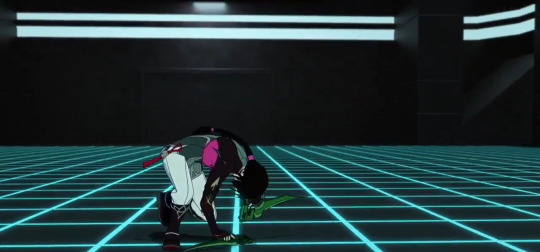

Seriously, we haven’t seen such a fire in Ren’s eyes since V4 against the Nuckelavee and his whole history with the beast that killed his family and destroyed his home village. So I’m assuming his key story for V7 will be bettering himself as a warrior for the people around him and for the upcoming war with Salem and the chaos that will happen once the truth comes out to the General and the rest of Remnant.
Those are my thoughts on that for now.
~LittleMissSquiggles (2019)
#Anon-ninja#squiggles answers: rwby#lie ren#nora valkyrie#oscar pine#jaune arc#ruby rose#rwby theories#rwby volume 7 theories#rwby volume 7 spoilers
54 notes
·
View notes
Note
Shiro also get hate by Keith haters for having "favoritism" toward him. While Keith do depend a bit of Shiro(understandably, he is the closest to a relative he have), he still see him as a person an not a hero who can't do nothing wrong like Lance.
Ugh, yes, I’ve seen that. The whole, “Shiro only picked Keith because they’re brothers / he’s known him the longest,” which is nonsense and makes no sense given Shiro’s character.
Shiro has always shown himself to be an excellent leader and a great judge of character. While he does have some issues of his own (most notably PTSD due to his time spent as a Galra prisoner), that doesn’t impede his ability to fairly settle conflicts between the other Paladins, make strategic decisions, or train the rest of his companions so that they know what they’re doing on the battlefield. Shiro has an eye for the abilities of others. He knows exactly what his Paladins are capable of, what they excel at, and what their weaknesses are. And in fact, a great example of this comes in late season two, when he, Lance, and Pidge go on a mission to rescue Slav. Earlier in the episode Lance brags about being the team’s sharpshooter, to which Pidge expresses complete disbelief, saying that that’s not his role and never has been. At the end of the episode, however, Lance does pull off a fantastic, near impossible shot to save Slav, and Shiro grins and says, “That’s why we bring our sharpshooter along.” Shiro picked Lance for that particular mission for a reason, and it is because Lance is, indeed, the best shot on the team. Pidge might not have recognized that about him, but Shiro did, because Shiro has a good measure of his companions and their abilities without biases clouding his judgment.
And yes, I absolutely mean that, because Shiro isn’t blind to Keith’s flaws either. In “The Blade of Marmora,” he explicitly tells him as they travel to The Blade of Marmora’s base that he has everything in him to be a fantastic leader, but that he does need to have more self-discipline and get his emotions under control. He gives him two instances where this would have been better served: When he snapped at everyone back on the castle earlier in the episode, and when he and Allura left the team because they wanted to see if they were the ones Zarkon was tracking. It’s not that Shiro doesn’t see that Keith has things to work on, or that his favoritism wins out despite this; rather, it’s that these are things that Keith can work on, things he can master, things he has already taken great strides to getting under control, and once he does, he’s the one best suited to lead the team after Shiro. (Especially since it isn’t as if Shiro is above losing his temper; just look at how he lost his cool with Slav. Patience yields focus, Shiro. Remember that?)
(And as a sidebar, to defend Keith in those two instances: Keith did snap at the others back on the castle, but he did so because it was being suggested that they not go ahead with the plan, and Keith saw this as an opportunity not only to gain more allies (The Blade of Marmora), but also to get answers about the identity crisis/his history, and some of those questions are ones he has no doubt had since childhood. It’s not that I’m saying he was necessarily “right” to yell, but I think we can forgive him for being on-edge considering what he has been grappling with. As for leaving the team to protect them, not only did Allura do that as well, but Keith was actively putting the safety of the others above his own. He was willing to isolate himself from them if it meant protecting them from Zarkon. I’m not sure how we can exactly fault and criticize him for this when, although it was a decision he made based on how he felt, it was a self-sacrifice he made for the benefit of the team, and that kind of team-based thinking is what a leader needs. I think Crown Princess Allura, who made the same exact decision for the same exact reasons, would agree.)
Aside from naming Keith as his successor (which isn’t favoritism at all, but rather a sound decision), I really don’t see other instances in which Shiro has shown “favoritism” toward Keith. In fact, I’ve seen numerous posts highlighting the fondness Shiro has for Pidge, in all honesty. That’s not to say that he likes Pidge “more” than Keith, but the point here is that I don’t think Shiro has ever shown Keith undue support. If anything, I think he could have shown a bit more when it came to standing up for Keith against Allura’s racism, but hey. I guess the writers felt the show was on a bit of a time crunch. But I really can’t recall Shiro showing undue “favoritism” toward Keith. And the fact that their history (whatever the exact details are—I’m still banking on half-brothers) has been kept on the down-low is probably a part of this, because I feel like Shiro is the type to take things an extra step to make sure the other Paladins don’t feel as if they’re not as important to him/the team as Keith is. Shiro is the type of person to be conscious and considerate of that sort of thing.
So yeah, throwing shade Shiro’s way for ~*~favoring~*~ Keith is wrong. Shiro has always been an excellent leader, and he knows what he’s talking about. He has personally trained Keith in some capacity even before the series began (“[slow inhale / slow exhale] Patience yields focus.” / “That really stuck with you, huh?” / “You’ve given me some great advice. If it wasn’t for you, my life would be a lot different”), and so he knows better than anyone exactly what Keith is capable of. He named Keith leader for a reason. Let’s listen to him.
(That said, we can talk about fandom treating Shiro unfairly without bashing Lance, so let’s not go that route. They go low, we go high, and all that, especially since Lance has shown that he’s willing to argue with Shiro as well … even if he was doing it because he was salty that Keith was getting to go on the Blade of Marmora diplomacy mission instead of him. Regardless, he still argued, so there’s no need to bash him, and certainly not to defend Keith / Shiro / whoever. If you have to hate on another character to defend your fave, your fave is not worth defending, and both Keith and Shiro are absolutely worth defending, so let’s not ruin that.)
#white-gehenna#also Shiro was confirmed a teacher at the Garrison before his disappearance#he is used to working with students and recognizing their abilities#he absolutely knows what his space kids are capable of#and isn't letting bias cloud his judgment#how hard is that to see?#trust Shiro#he knows what he is doing
3 notes
·
View notes
Text
Doctor Who and the story of Rosa Parks
I love tv knitting, and it's very hard to find stuff that makes for good tv knitting. It has to be something where watching and seeing what's happening isn't necessarily important, because I only look up occasionally from what I'm doing.
I'm loving the new season of Doctor Who, which is NOT tv knitting. Jodie Whitaker is an absolute treasure. And the episode from this past week is a fun return to one of my favorite kind of episodes: the historical episodes, centered around specific events and people from history. And the setting of the episode this week is Montgomery, Alabama and the bus boycotts of the Civil Rights Movement, with Rosa Parks as one of the main characters of the episode.

Spoilers. You've been warned.
Overall, I loved the episode. It was a powerful, modern representation of one of the most important moments not just in so-called "Black history," but in human history. And because the Civil Rights movement is so important, how it's represented matters deeply to our human narrative. The episode, unlike other historical episodes of Doctor Who, doesn't play with the historical events surrounding Rosa Parks and turn them into fodder for light-hearted sci-fi elements. Queen Victoria as the founder of Torchwood, Shakespeare's Globe theatre as the site of a hostile alien invasion via a lost play, and mistaking Queen Elizabeth I as an alien in disguise are really good examples of how Doctor Who has done this in the past.

This approach would not have been appropriate in this case, for reasons the episode makes perfectly clear: racism is a current battle ground that many people still fight on, and historical revisionism is a dangerous tool in that fight. Taking control of someone else's history, especially when they're a disenfranchised minority group, is dangerous. Doctor Who wanted no part of this, and the entire premise of the episode was to restore historical events surrounding Rosa Parks to their original state because a racist white guy has decided to enact violence upon an entire group of people by changing their history.
Anyone who saw the episode and is at least nominally familiar with Rosa Parks is probably with me so far. And with that premise of historical revisionism = bad, let's explore another story the episode doesn't mention. This one IS from my tv knitting: Drunk History (on Hulu and Comedy Central)
undefined
youtube
Rosa Parks and her actions were one of many, MANY important catalysts in the Civil Rights movement. She didn't act alone. She wasn't even the first black person to refuse to give up her seat on a bus in Alabama. Rosa Parks got the idea from Claudette Colvin, a 15-year old girl who refused to give up her seat on a bus to a white person earlier that same year. Rosa Parks found out about it as the secretary of the NAACP in Montgomery. She and Claudette Colvin knew each other, and Rosa Parks was her mentor and very close friend.
Rosa Parks did not spontaneously refuse to give up her seat on the bus. She volunteered and chose to do so, as planned by the local chapter of the NAACP in Montgomery. It was a premeditated protest, directly inspired by the actions of Claudette Colvin. To leave Claudette out of the story was a choice that was originally made by the NAACP in crafting the narrative of Rosa Parks. That decision galvanised white support for the bus boycott. Consequently, Claudette Colvin is not nearly as well-known as Rosa Parks—even though she took the same calculated risk, and did it first without the prompting or support of anyone.

This episode of Doctor Who is powerful. It's one of the best I've ever seen because of the positive, inclusive message it tries to send. I truly loved it and found it inspirational. But there is a real disconnect between what its stated ambition is, and what it actually accomplishes because of how it chooses to portray Rosa Parks within the context of her own life. The "one person can make a huge difference" message is valuable, and when you view Rosa Parks in isolation that may be what you take away from her experience. But a better, more historically accurate message would have been "none of us can truly inspire change alone," because Rosa Parks would be the first to tell you that's not what she was trying to do. Change happens when we work together for it, because none of us exist in isolation. Nothing ever happened or made a difference in the Civil Rights movement when people acted alone. People who act alone are easy to forget. We can only affect lasting change when we work together. That's the difference between Rosa Parks and Claudette Colvin. That's why we remember one and not the other. Rosa Parks had an entire movement of organized people behind her that were committed to remembering her and telling her story. But there would be no Rosa Parks without the courageous acts of unknown people who have largely been forgotten, like Claudette Colvin.
So how could the episode have incorporated this larger historical context differently? I think a red herring where the Doctor and her companions think they're supposed to be helping Rosa Parks, but they really need to find and help Claudette Colvin would have been even more interesting. It would have accomplished their stated purpose of protecting and defending history from revisionism even better. It would not have been as straightforward and easily digested by many audiences because not many (let's be honest, white) people know who Claudette Colvin is. But that would have been part of the appeal to people who prefer plots with a little less transparency from the start.
That the writers at Doctor Who even went here is a testament to what they hope to accomplish with their storytelling, which I'm a huge fan of. And I have always loved the episodes where they play with history because I'm such a history nerd. I'm hoping they continue to explore this balance between historical accuracy and compelling fictional storytelling. And I hope I don't have to wait so long for another episode like this to come around.

(Oh Moffat. How I DON'T miss you.)
#doctor who#rosa#rosa parks#tv knitting#drunk history#civil rights#history#black history#civil rights movement#claudette colvin#herstory#jodie whitaker#nerdy knitting#dr who#dr who series 11#freedom riders#freedom rides#bus boycott
0 notes
Photo
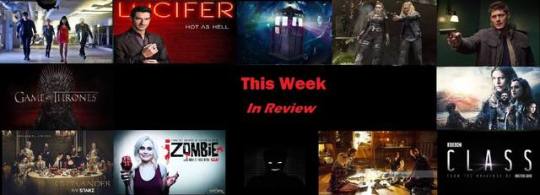
This Week in Review
April 23 – May 7
FANTASY
Once Upon a Time
Season 6: Episode 18 – Where Bluebirds Fly
In flashback, Zelena befriends a young woodcutter who has been cursed and turns to her for help finding a new heart. Zelena is forced to choose between keeping her powers and her friendship with him. Meanwhile, in Storybrooke, Zelena decides to take on the Black Fairy and put a stop to her, once and for all, against Regina's wishes, and the Charmings disagree over Emma and Hook's wedding plans.
So this was more of a Zelena proving herself episode. She keeps trying to do the “right” thing and ends up messing it up even more. She tried taking on the Black Fairy, and yet made it worse and made her more powerful. The backstory of her with the tin man was mostly exposition to get the heart she needed. When she completely screwed up, it seemed like she would actually go back to Oz. But then she decided against it and sacrificed something she cared about dearly in order to save everyone. It would have been a fitting ending for Zelena, as it feels like the writers have had little to do with her character lately. But her giving up her magic seemed to help with the heroes’ plan. Now… if only they can figure out how to get the heart back from the Black Fairy.
Season 6: Episode 19 – The Black Fairy
In flashback, after Rumple’s mother, Fiona, learns from his fairy godmother that his destiny is prophesized, she does everything in her power to keep it from happening. Ultimately, Fiona will have to make a decision that will change the course of both their lives forever. Meanwhile in Storybrooke, Rumple faces a similar dilemma.
So we get the backstory to Rumple’s mother. And of course she’s a misunderstood character. Can’t we ever get a character that is just inherently bad and doesn’t have connections to everyone? I suppose that wouldn’t make for good drama. The prophecy about the evil being born the same winter as her son… I think it is safe to say it was not a shock when we discovered it was her. This episode would have been better placed earlier in the season. Giving us a bit of backstory before we saw the evil of the Black Fairy. It would have allowed the audience to sympathise with her a little bit more. The final scene with Gold was both intriguing and heartbreaking at the same time. We love Rumple as a villain, but at the same time, don’t we love him as one of the heroes? With the final battle approaching, it will be interesting to see who will be on whose side.
NEXT WEEK
Season 6: Episode 20 – The Song in Your Heart
In flashback, Snow and Charming make a special wish that Emma will be protected. The result of their wish has the whole kingdom bursting into song which infuriates the Evil Queen. Meanwhile in Storybrooke, the Black Fairy announces her plans to unleash another curse on the town while Emma and Hook prepare for their wedding.
PARANORMAL
Lucifer
Season 2: Episode 14 – Candy Morningstar
Two weeks after Chloe’s near death, Lucifer has gone off the grid, cutting off all contact from his family and the police department. He materializes just in time to help solve an up-and-coming guitarist’s murder and introduces the department to a ditzy stripper named Candy, a mysterious new woman in his life. While Lucifer’s mom desperately tries to contact her son, Chloe tries to push him away. Lucifer must find a way to prove himself in order to be invited back onto the team.
Welcome back Lucifer. And Mrs. Morningstar. It was interesting to see Chloe jealous, but uncertain why she felt this way. The arrival of Candy was Lucifer’s way to deal with the fact that his father was the one who put Chloe in his path to begin with. But it was all too good to be true. Of course it was not as it seemed. Watching the family and the department run around in circles trying to figure out what Lucifer had planned was almost as good as Candy discovering different things during the murder investigation. It was entertaining to watch this episode, and the little bits of comic relief were perfectly placed.
NEXT WEEK
Season 2: Episode 15 – Deceptive Little Parasite
When it is discovered that the flaming sword is the only hope for the family returning home safely, the pressure is on for Lucifer to control what he has never been able to control before – his emotions – in order to ignite it. Meanwhile, Chloe wants to air some emotions of her own, but when a therapist and head of admissions at a prestigious private school turns up dead, the team must get to the bottom of it
IZombie
Season 3: Episode 4 – Wag the Tongue Slowly
Clive’s patience is tested when Liv consumes the brain of a murder victim who had the reputation of being the ultimate office gossip. Meanwhile, Blaine and Peyton continue to grow closer as they wait to see if Ravi is able to reverse the effects of the cure. Lastly, Major is one step away from fulfilling a promise.
Sadly this is the episode where we see the serum for the cure not working. Blaine does not regain his memories, which for him is a good thing, but for Major it is a bad thing. Major is dying due to the cure, and his only chance is to take the serum. And if he does, he’ll forget everything. Peyton is put in the middle of the dilemma, because she really likes the new version of Blaine, and would be able to forgive his past deeds. But in doing so, without the memories coming back, a friend of hers could die.
Season 3: Episode 5 – Spanking the Zombie
When Liv consumes the brains of a dominatrix, her bossy and controlling personality makes everyone a little uncomfortable, especially Clive. Meanwhile, Blaine and Peyton have a heart-to-heart.
You have to love dominatrix Liv; she took on that role very well. It was a bit difficult for Clive to keep her in line, but luckily he now knows that she is a zombie, and can just explain the kind of brain she had eaten. And fair warning, the final scene with Liv and Major certainly kicked me in the feels, and made me hope that he keeps his memories. They seem like the couple that could never get together properly, but the one we all want to see end up happily ever after. But, because it is television, we’ll have to wait for a very long time, or never, to get it.
NEXT WEEK
Season 3: Episode 6 – Some Like it Hot Mess
To help Clive solve the murder of an irresponsible narcissist, Liv consumes her brain and literally becomes a hot mess. Meanwhile, Peyton learns some shocking news. Lastly, Ravi experiences a major setback.
Supernatural
Season 12: Episode 19 – The Future
Sam comes up with a way to stop Lucifer’s baby but Castiel has something else in mind for Kelly. Dean is furious when he finds out someone stole the colt. Kelly makes a bold choice about the baby’s future.
Poor Castiel, always trying to do the right thing, but in the wrong ways, and always getting crap from Dean about it. But this seemed different. Castiel wanted to take the baby to heaven to kill it, Sam and Dean wanted to try something to take away the baby’s powers given to him by Lucifer, and Kelly wants to have her baby with all his powers. It seems that the baby was already beginning to protect Kelly from certain dangers, and so protecting himself. It is certain that Kelly will die in giving birth to her new son, but she is aware of this. By the end, Castiel makes yet another decision that leaves us with dropped jaws, and he swears to protect Kelly and her unborn child, to be born with all his powers. But, thanks to the fight with the prince of hell, the Colt is now broken and they have no way of fighting the next battle.
Season 12: Episode 20 – Twigs and Twine and Tasha Banes
Alicia Banes calls Mary for help after her mother, Tasha, goes missing. Sam answers Mary’s phone and he and Dean head out to help Alicia and her twin brother, Max, find their mother who was hunting a powerful witch. Meanwhile, Mary starts to have some doubts about the British Men of Letters.
The case with Alicia and her brother was interesting enough; it is always interesting when old characters make reappearance on a show. We also learn how Sam and Dean don’t allow others to do what they have done. They have sacrificed and broken the rules for each other so many times it’s almost comical when they die, but they will not allow others to do that for the ones they love. It could be viewed as a holier than thou situation, or they could be doing it to protect others. They know the consequences if something goes wrong, and they seek to protect everyone. But while all of this is going, it’s hitting the fan with the British Men of Letters. Mary starts digging into the truth and this episode really starts to kick off and set up for the next few episodes of the season.
NEXT WEEK
Season 12: Episode 21 – There’s Something About Mary
Sam and Dean are alarmed when they learn hunters are being killed by suspicious “accidents” all over the country. They decide it is best to find Mary and make sure she’s safe. Meanwhile, Toni is back in the states and she and Mary face off.
SCI-FI
Doctor Who
Season 10: Episode 3 – Thin Ice
The Doctor and Bill visit London during the last of the River Thames frost fairs in February 1814. They soon discover that there is something under the ice which is causing people to disappear.
Bill really shines in this episode as she sows her humanity towards the children on the ice. She shows her compassion and her generosity and helps the Doctor to see it as well. How many of you were expecting to see another version of the Doctor and River Song when he took her to the Frost Fairs in 1814. This episode must have occurred after that event because of the thaw. So, River Song’s birthday must be in January. It would have been interesting to see a glimpse of River’s hair or perhaps they walk past another TARDIS, just as a shout out to the viewers. But alas, this was a Doctor and Bill episode. This companion is really starting to grow on me.
Season 10: Episode 4 – Knock Knock
Bill is moving in with some friends and they’ve found the perfect house – so what if it’s strangely cheap to rent, and the landlord is a little creepy? The wind blows, the floorboards creak, and the Doctor thinks something is very wrong. What lurks in the strange tower at the heart of the building – and why can’t they find any way to enter it?
Things with Bill seem a little different from other companions. With the others, the transition between their personal life and their life with the Doctor seemed more narrated. But with Bill, it seems like we just jump into the thick of it. This works for this character. It worked when she was introduced, her character, her interests, and now this situation. The house was creepy up until the point we discovered what exactly it was. The idea that the house was eating people was really fun; it reminded me of a movie I saw once. The twist at the end seemed to be given away far sooner than the characters caught onto it, about who the woman was. In the final few moments when the Doctor enters the vault, it is uncertain who is inside, playing the piano. But given the tune they were playing, it is highly possible that it would have been the Master or Missy, depending on the regeneration that the character is in. I’m curious to hear your thoughts on this subject.
NEXT WEEK
Season 10: Episode 5 – Oxygen
The Doctor, Bill and Nardole answer a distress call in deep space, and find themselves trapped on board space station Chasm Forge. All but four of the crew have been murdered – and the dead are still walking! In a future where oxygen is sold by the breath, and space suits are valued more highly than their occupants, the TARDIS crew battle for survival against the darkest evil of all…
Please be advised that the comic book shows will have their own weekly post this season, just changing things up a bit. Please keep an eye out for the Superhero Low-Down
If there are any shows that you think we should check out or that we have missed, please send us a private message or leave a comment below.
0 notes
Text
Doctor Who: Smile (10x02)
I really like Bill. She's not enough to save a fairly lackluster episode, but I do really like her.
Cons:
I have a couple of problems with the plot of this episode. The first is that it can't seem to decide what its message is. At first I thought we were going to look at the psychological and physiological realities of emotions. The fact that a person can smile and actually force themselves to be happier is quite interesting. There's a message here about the way robots would perceive human emotions, and how they would process and handle humanity in general. At the end, the Doctor pulls out a typical 11th-hour style fix-it, and the story is suddenly about the emergence of a new life form, and the need for cooperation between the indigenous population, and the new colonists. This ending really undercut the key themes being explored in the rest of the episode.
The other problem I have is that Bill and the Doctor were both kind of idiots in this one. There's a moment where Bill starts asking "what's in all of these pods?" and can't figure it out until the Doctor literally says that the human colonists are in cryogenic pods on the space ship. That was so obvious. It made me angry that it took her so long to get it, especially since she's made a point of talking about her love of sci-fi. Similarly, the Doctor doesn't figure out that the robots are trying to "help" humanity by "deleting" unhappy people, until close to the very end. I literally understood that in the teaser. Duh. The Doctor also does a lot of over-explaining, as he finally grasps on to the "plot twists" that any half-conscious viewer picked up on way earlier. It was way too exposition-heavy.
Also, I normally appreciate the Doctor pulling a crazy fix out of nowhere, as I think that's part of the fun of the show. But the fact that he fixes the problem by taking a new species, who he has just realized has sentience, and forcibly removing their memories so that the races can have a fresh start? That's... a bit of a mixed message if I ever saw one.
Pros:
Bill is pretty great. She's full of that optimism and curiosity that's so nice to see in a companion. She's a genuinely good person who wants to help, but she also defers to the Doctor's supposed "expertise" in serious situations. She doesn't run in and muddle things up just because she wants to get involved, but she also doesn't let the Doctor trick her into staying behind. A great balance. She's curious about the Doctor without letting that curiosity be her driving motivation. She wants to see the world and explore, but she does also want to learn more about this mysterious guy who has the key to adventure. I really liked her observations about the TARDIS. She keeps asking why it's a police box, and later, when she asks why the Doctor has to be the one to solve the problems, she notes the text on the outside of the box and realizes that the Doctor thinks of himself as the emergency helpline that can get people out of trouble. This was a great way for Bill to learn more about her odd friend.
I really wish the episode would have gone more into the Doctor's psyche, but I loved what we did get to see. The Doctor is often a deeply unhappy person, especially in his current incarnation. The fact that he had to smile and insist on being happy was really interesting, as it gave us a chance to square off with this "fake it til you make it" ideology that the Doctor is so fond of.
I also like that the Doctor makes several incorrect conjectures on his way to finding the truth. I mean, sure, the truth was pretty obvious from early on, but it's refreshing when the Doctor fails sometimes. He can't always get the full picture right away!
This season's big mystery is the vault - apparently the Doctor made some sort of vow not to go off-world, so that he can protect the contents of a vault. We don't know who he made the vow to, what's in the vault, or how Nardole fits in to all of this. I like this plot thread, as it can be pushed far into the background (as in this episode) without fading entirely out of our minds. It can be pulled to the forefront when needed, and as long as the secret behind it is sufficiently exciting, will probably make for a very intriguing conclusion to Capaldi's run as the Doctor.
So... there you have it. A bit of a dud in terms of the individual plot. But there were some good things in here, and Bill continues to be delightful. The relationship between the companion and the Doctor is always the most important thing to get right, and so far, this season is getting it right.
7.5/10
0 notes